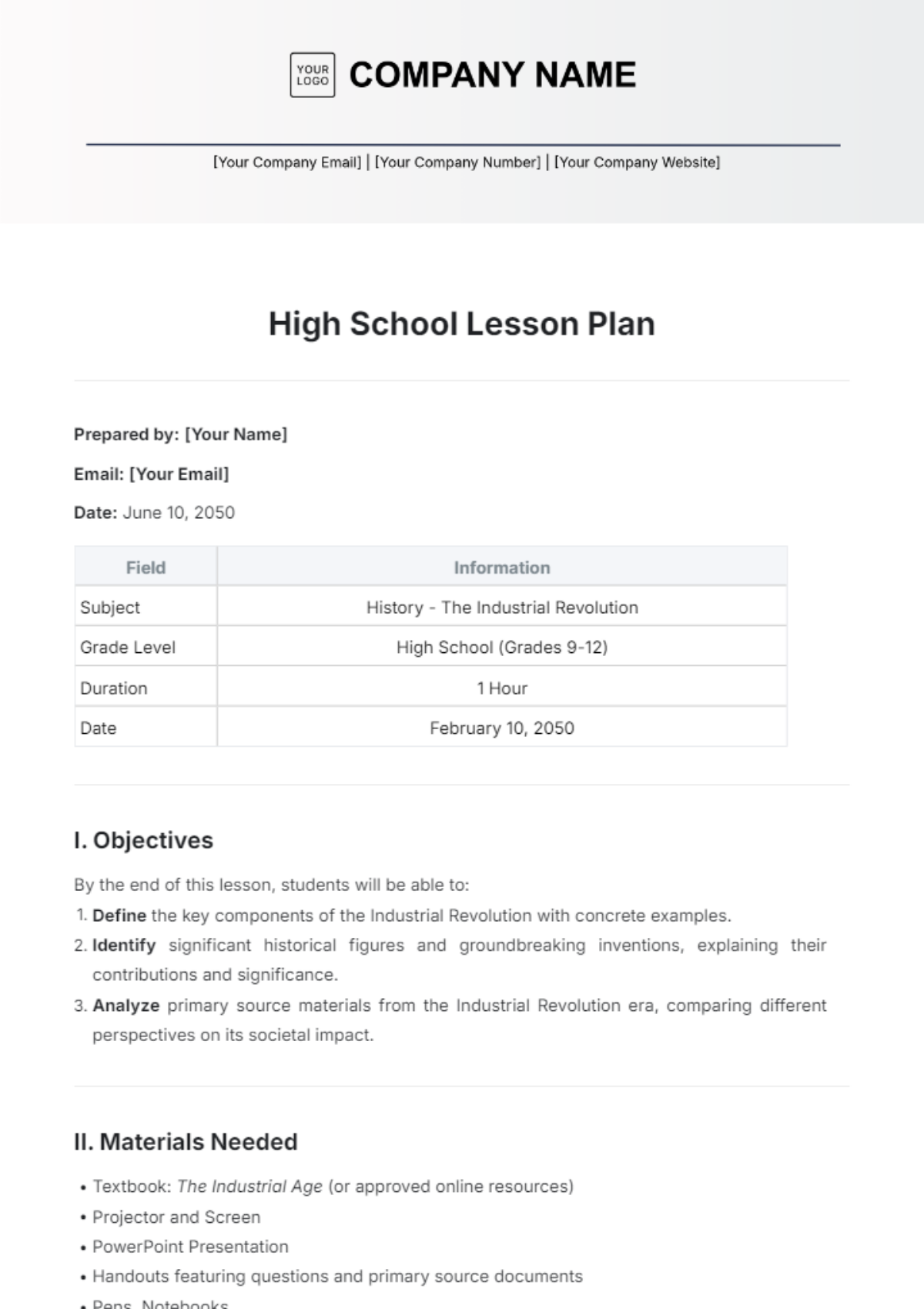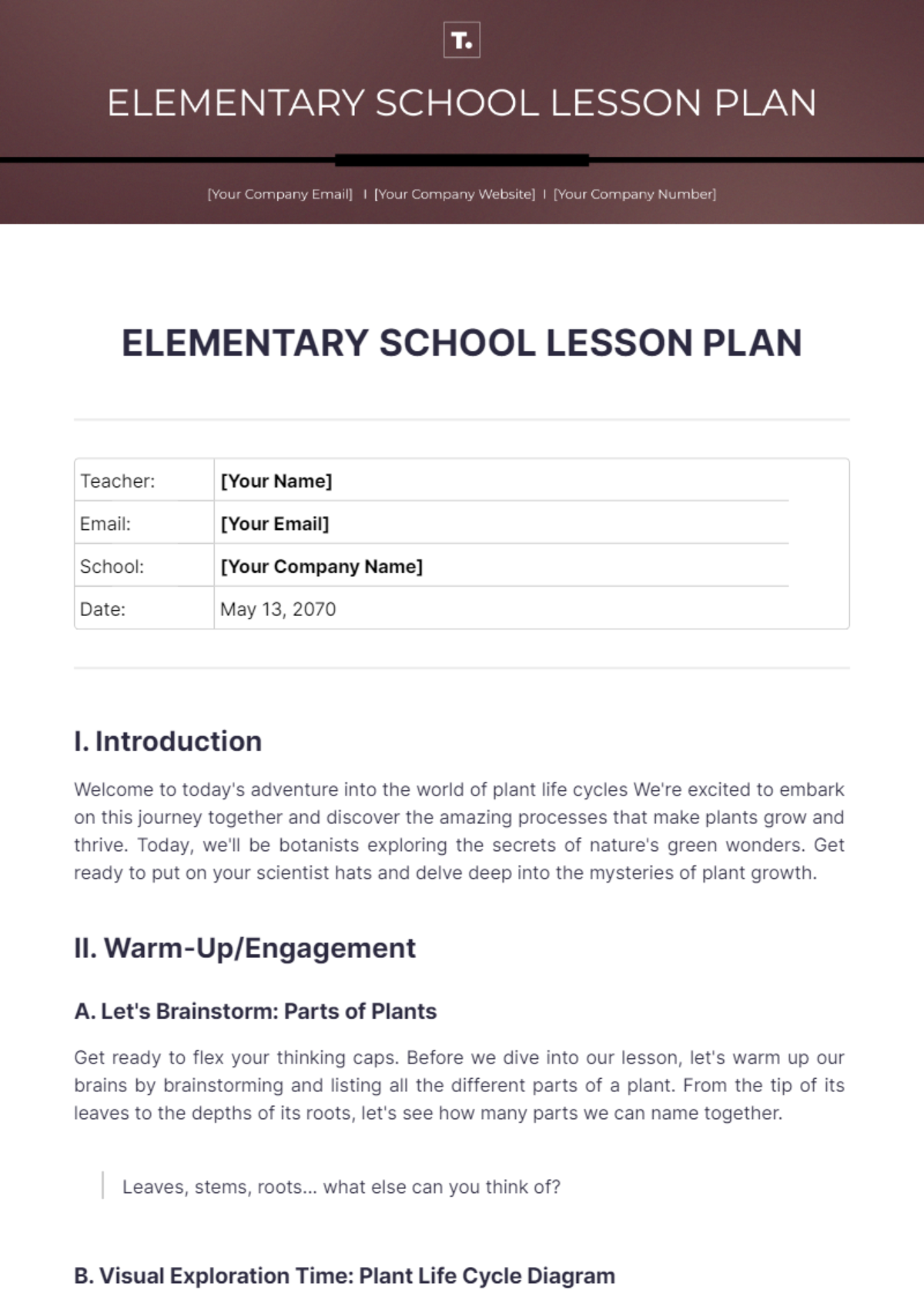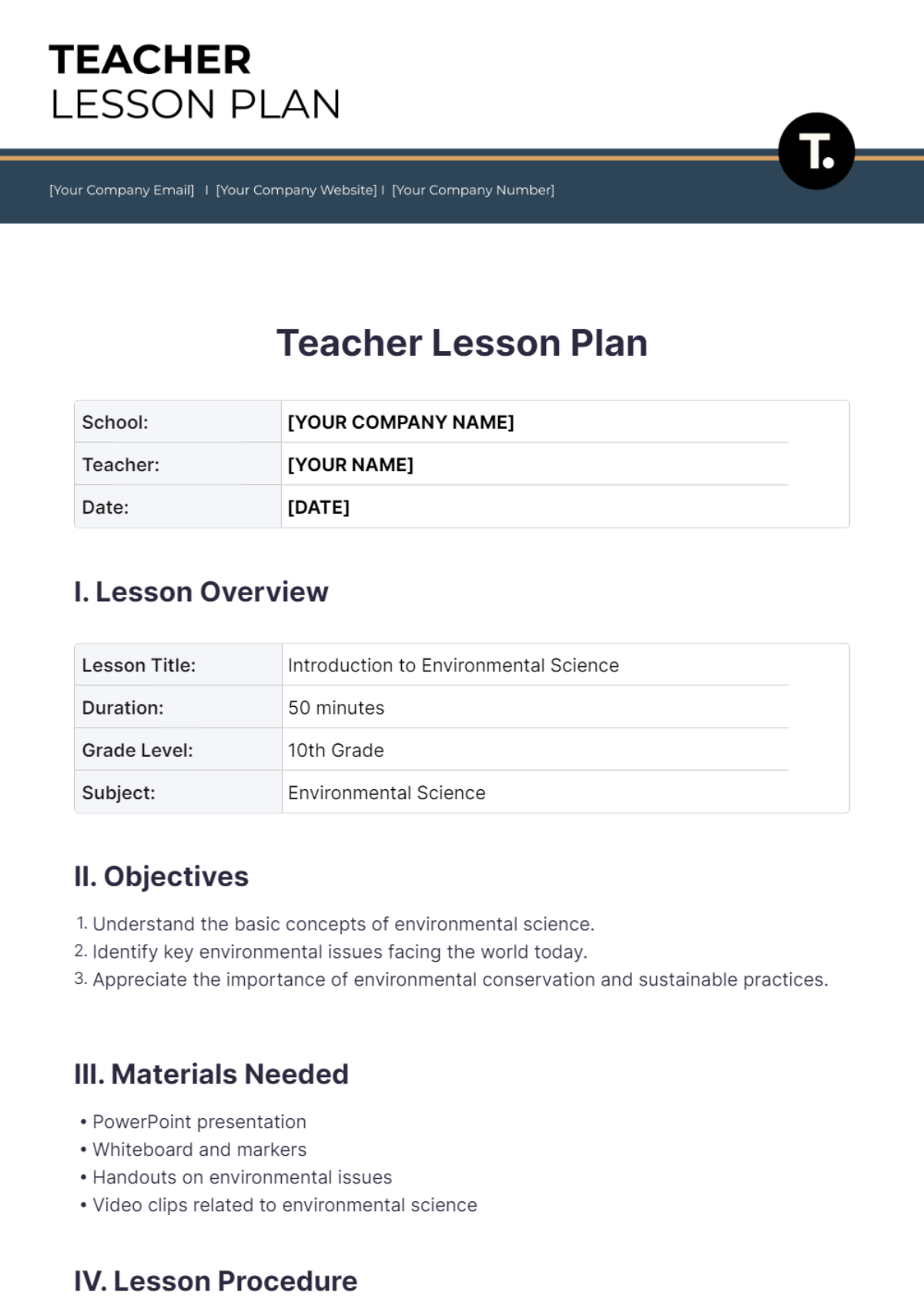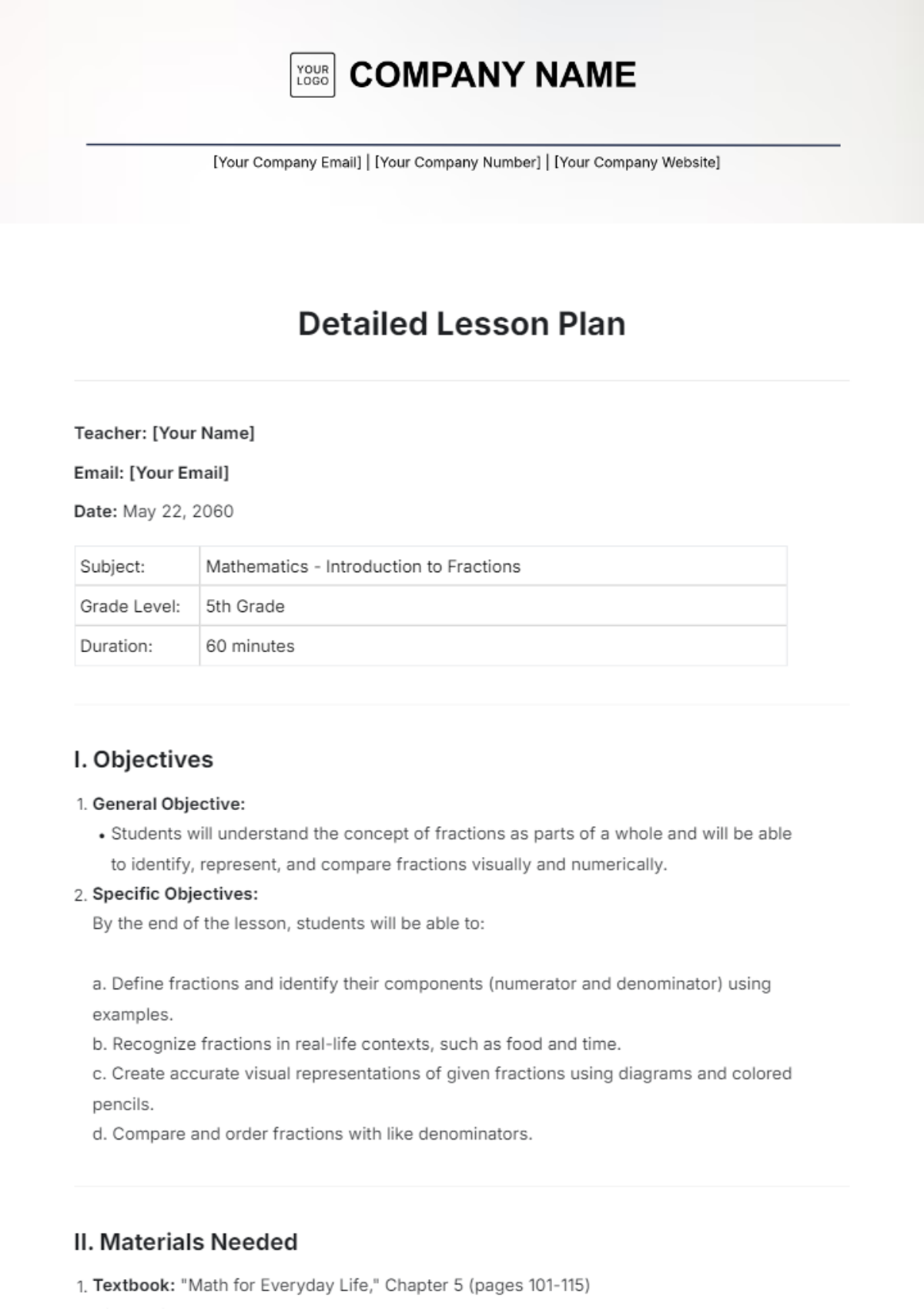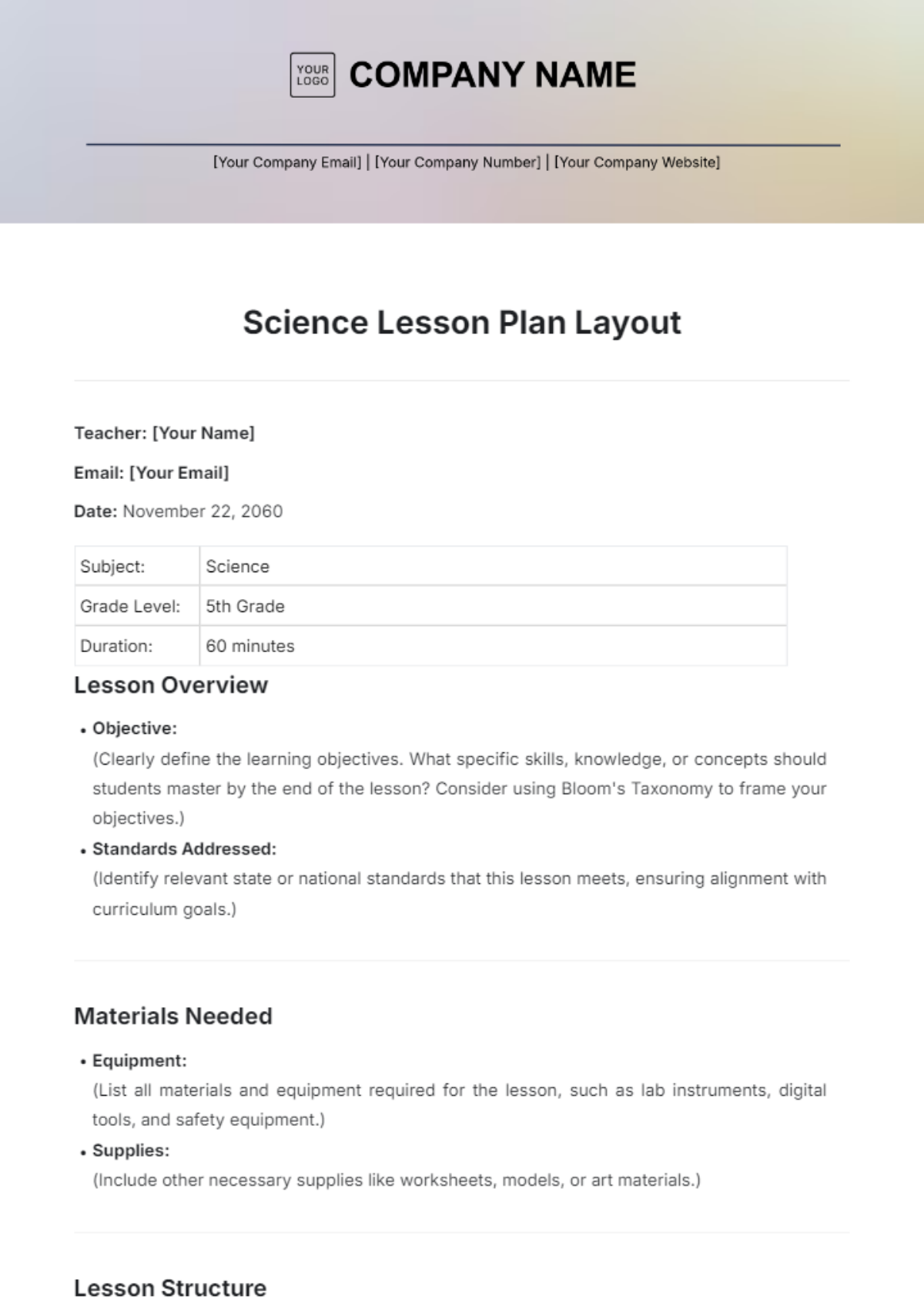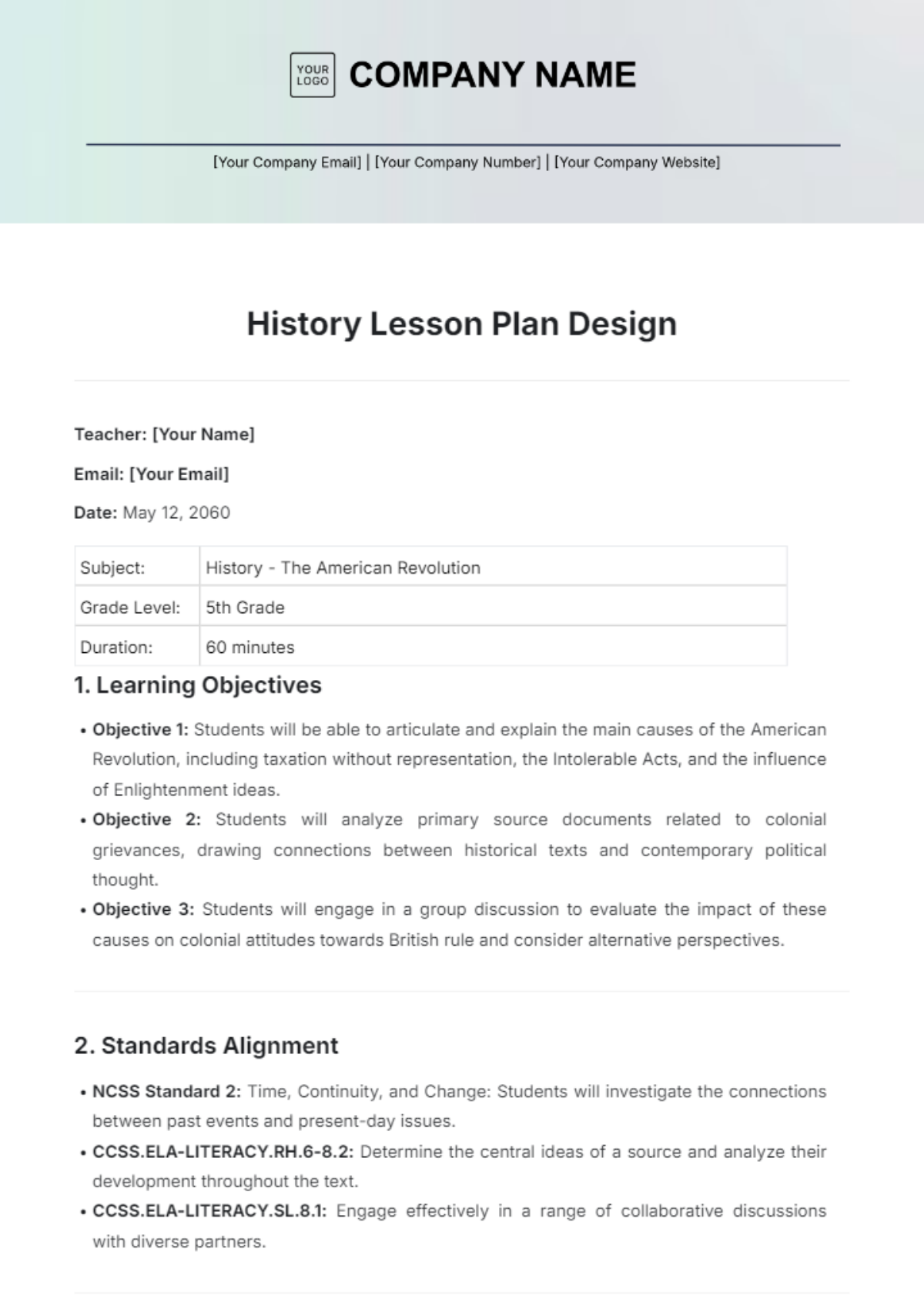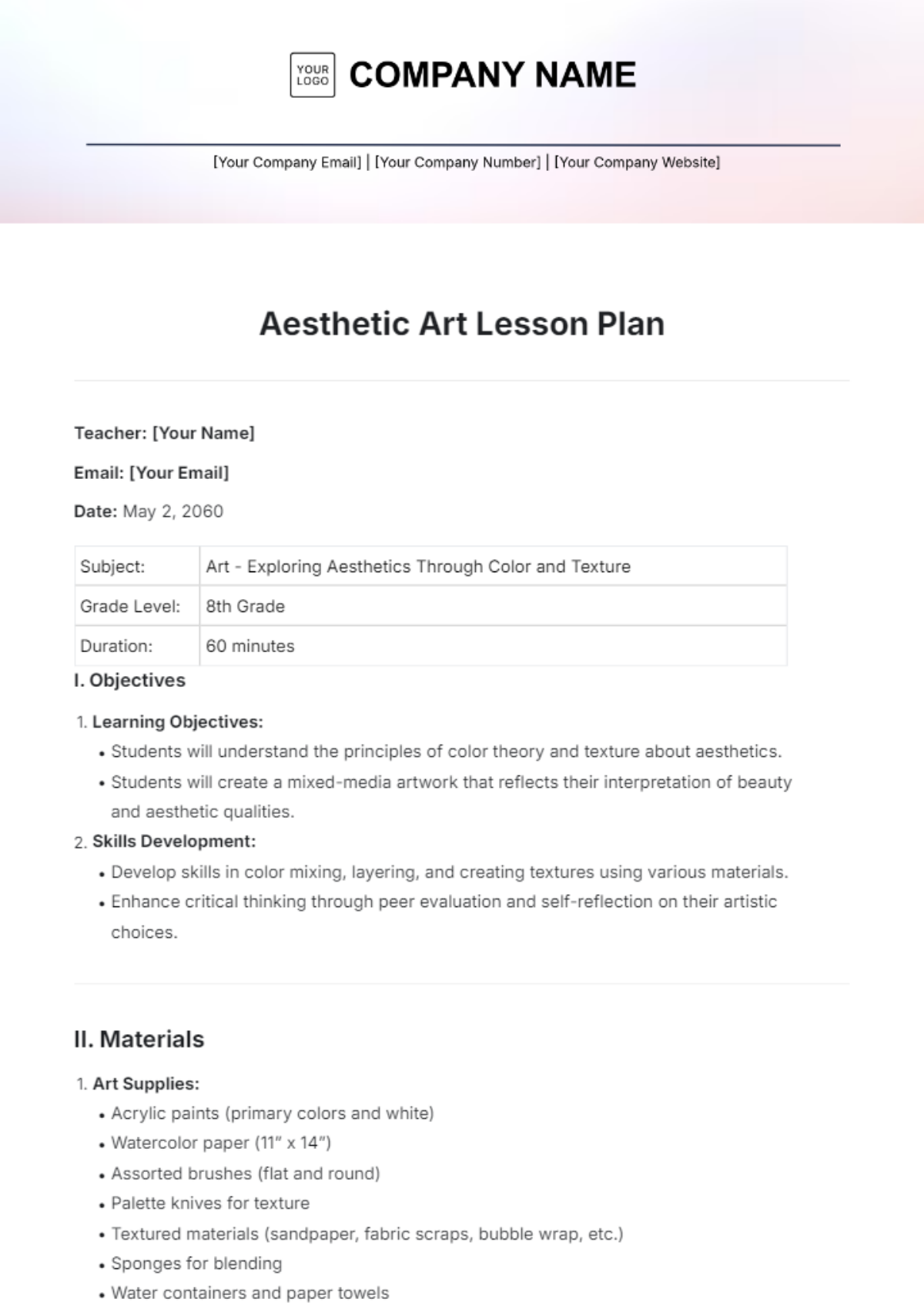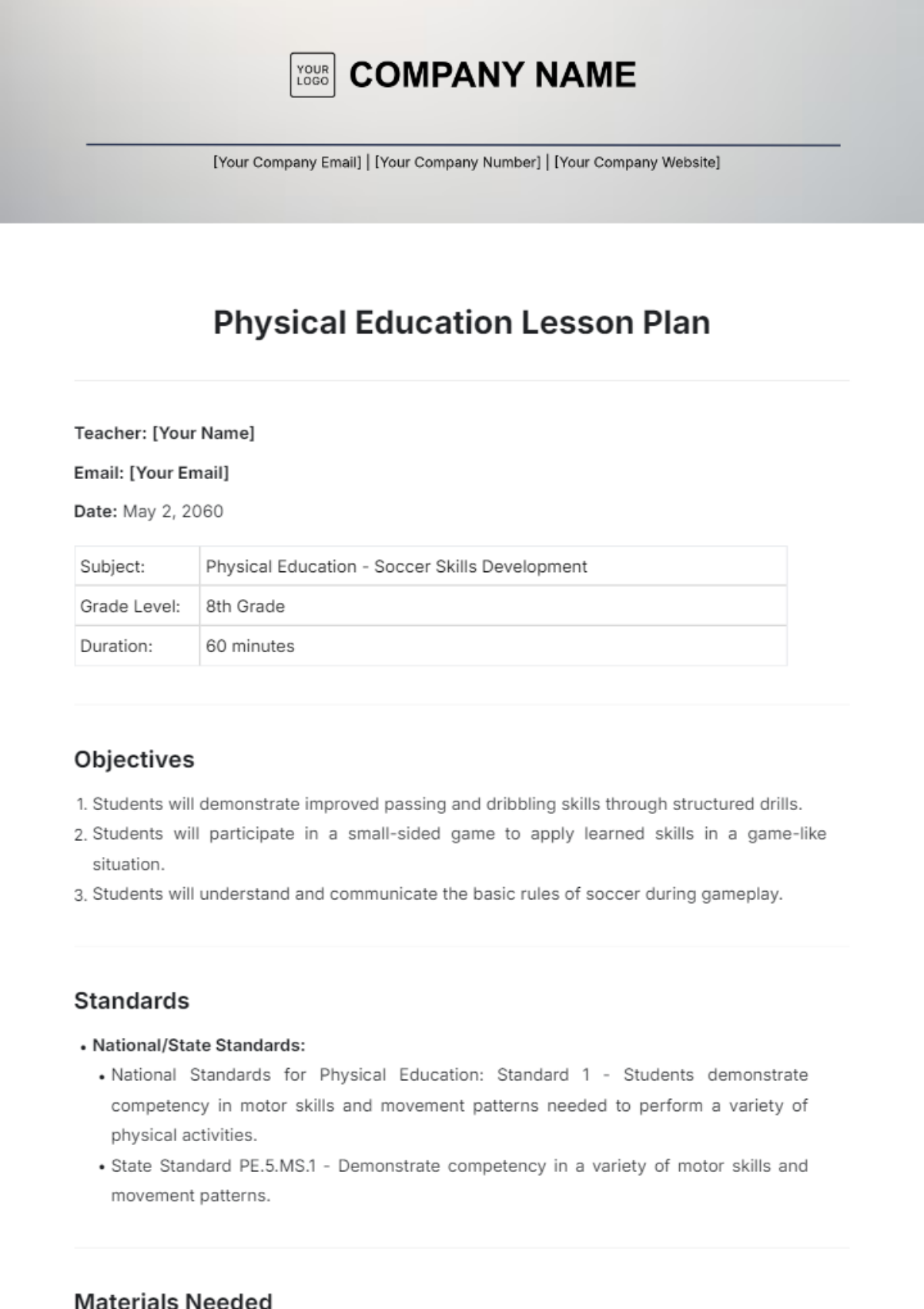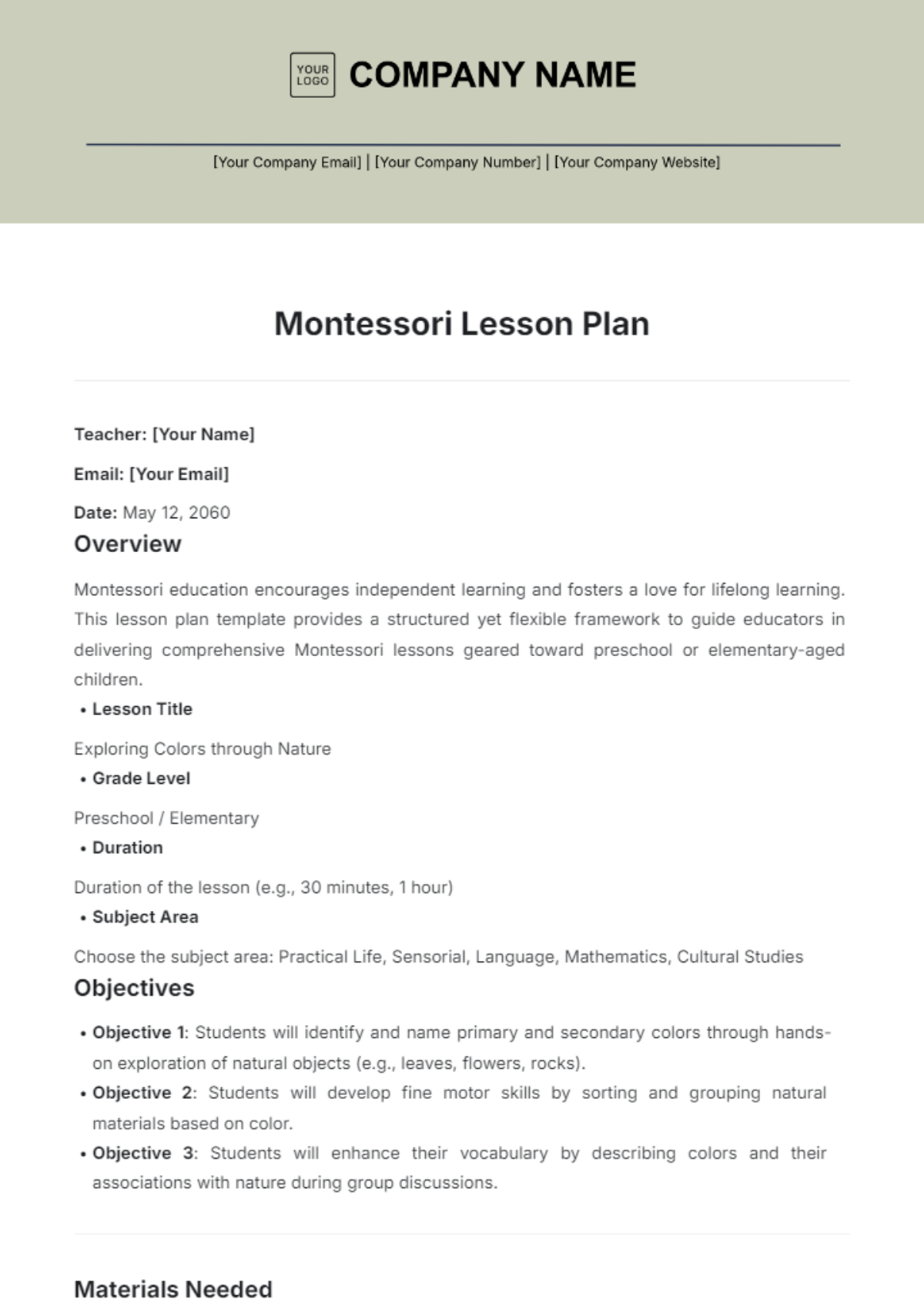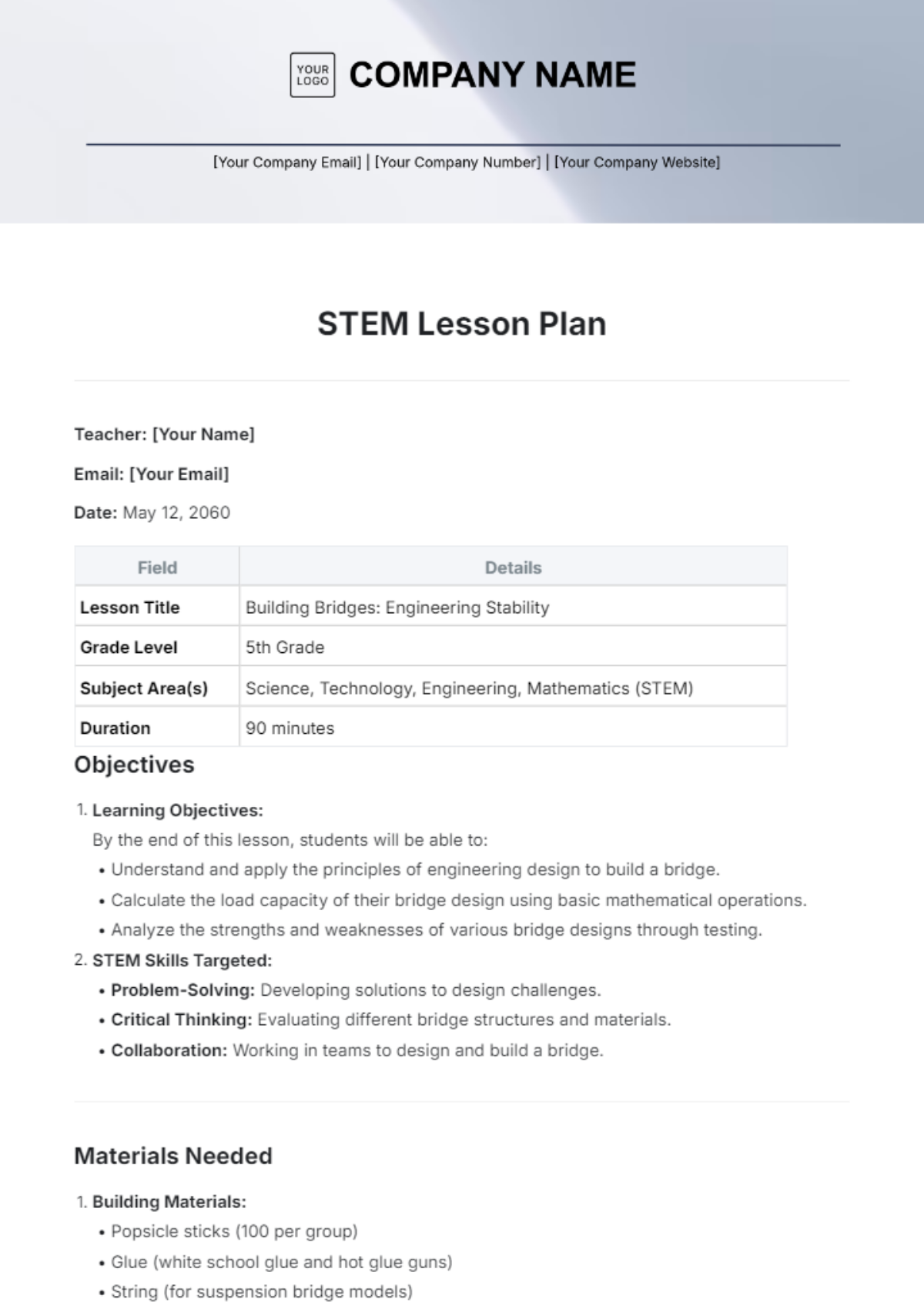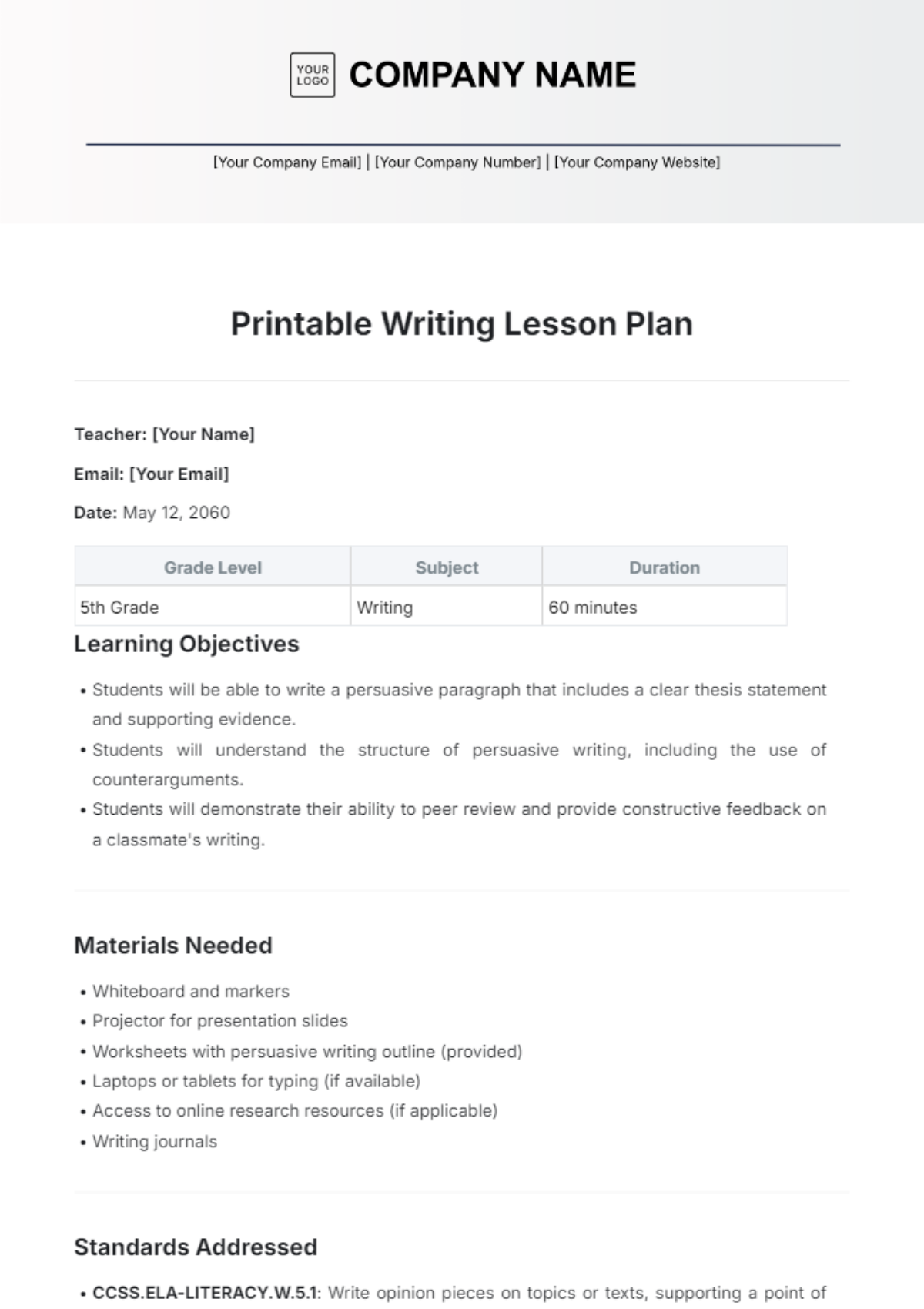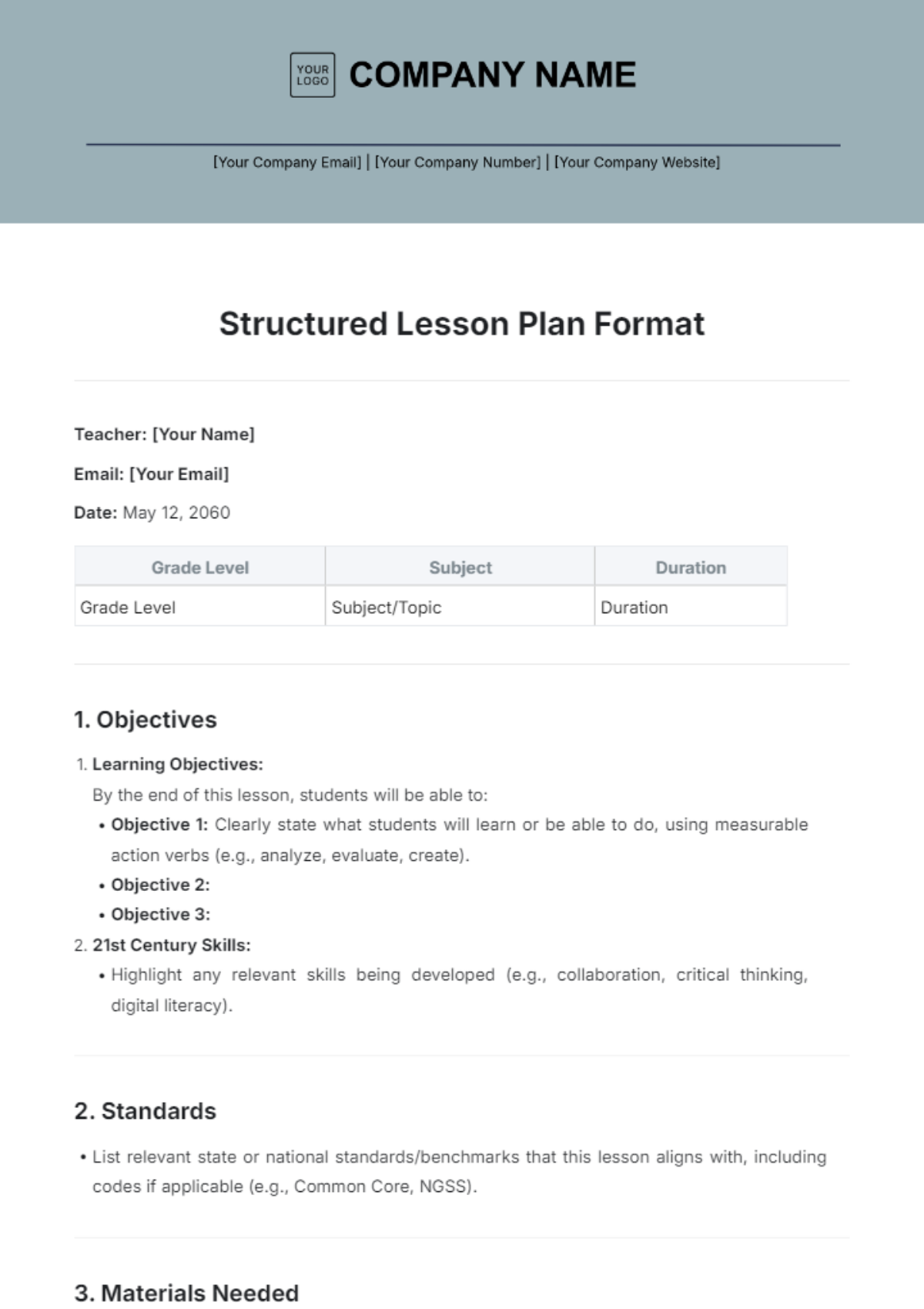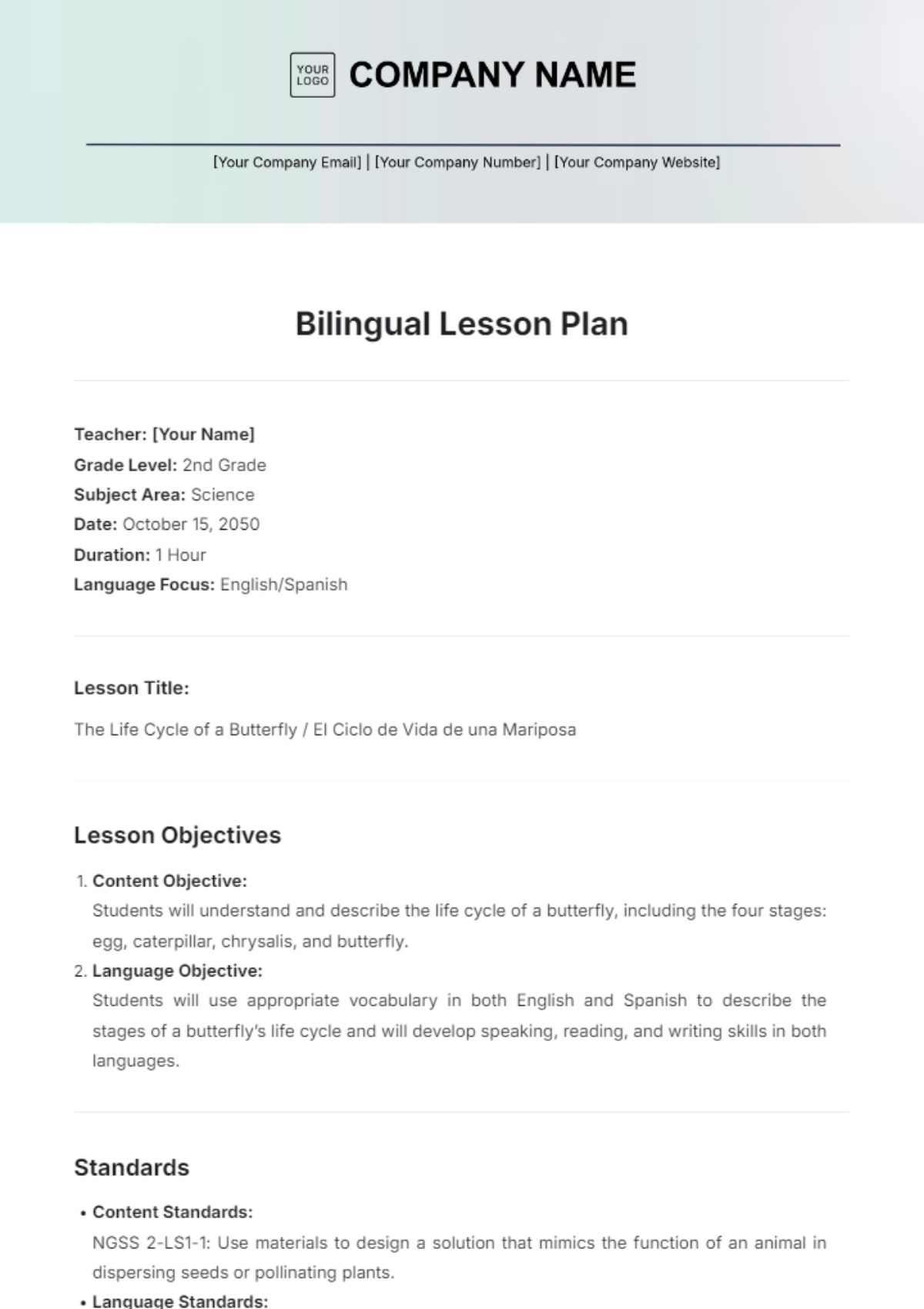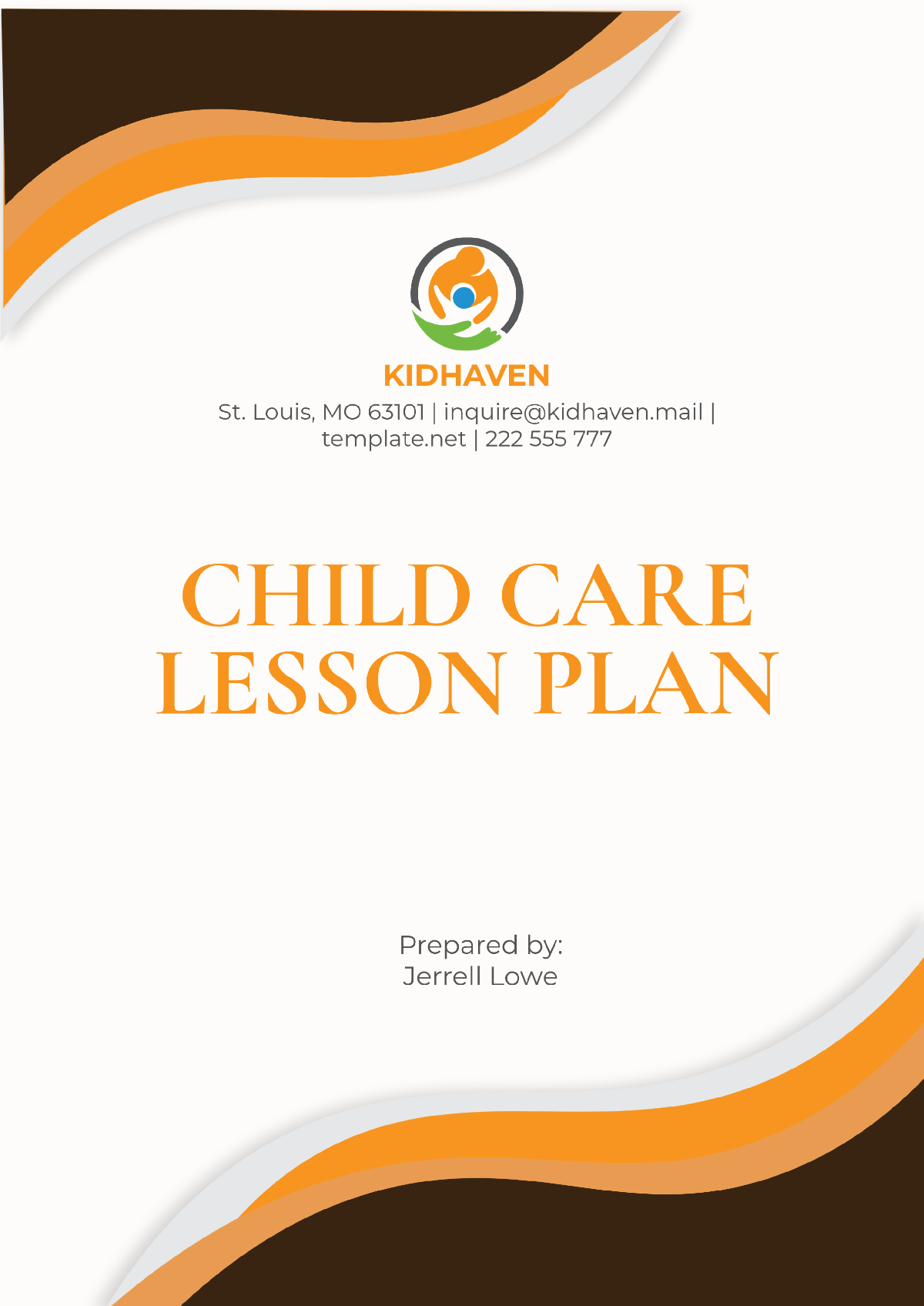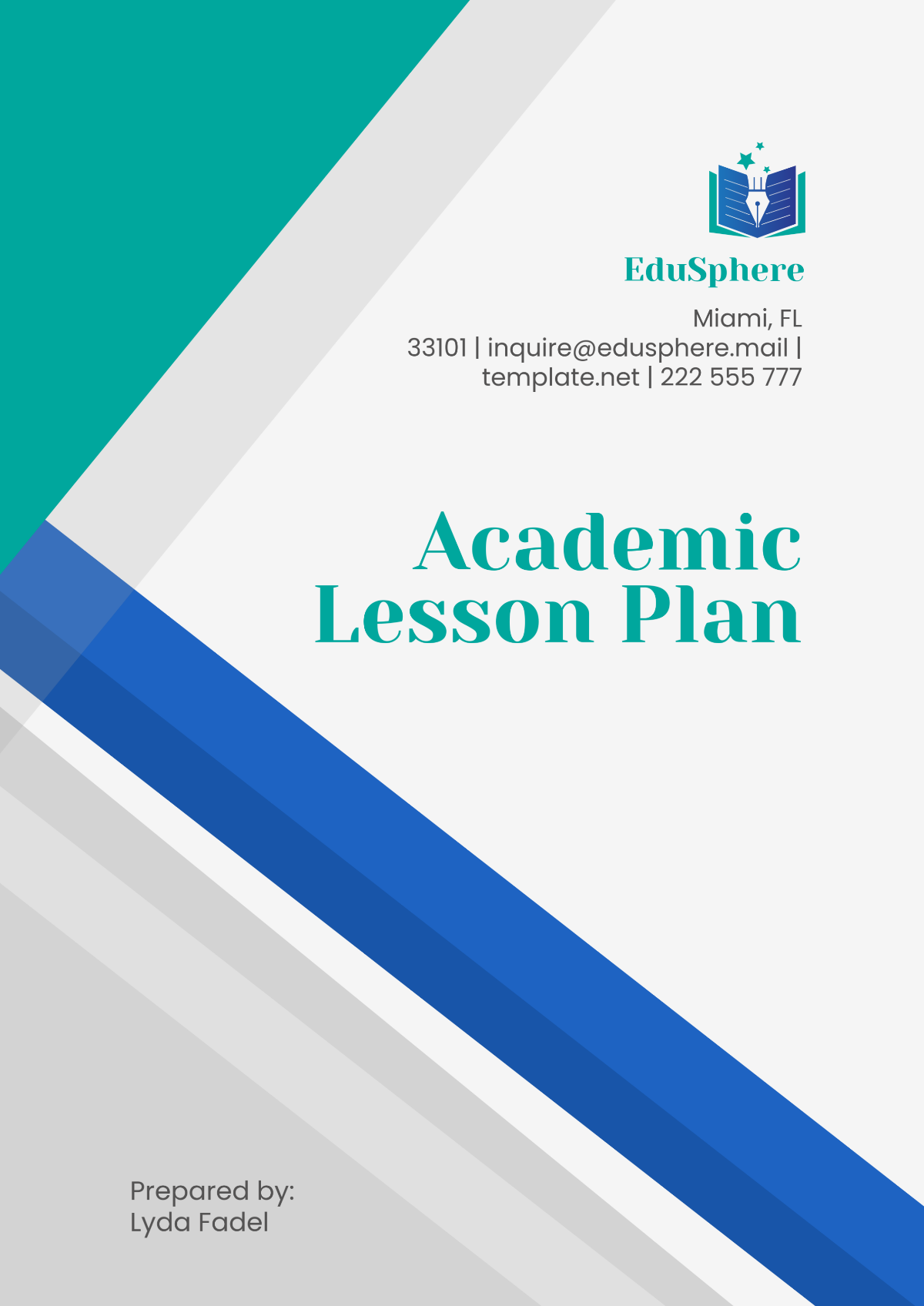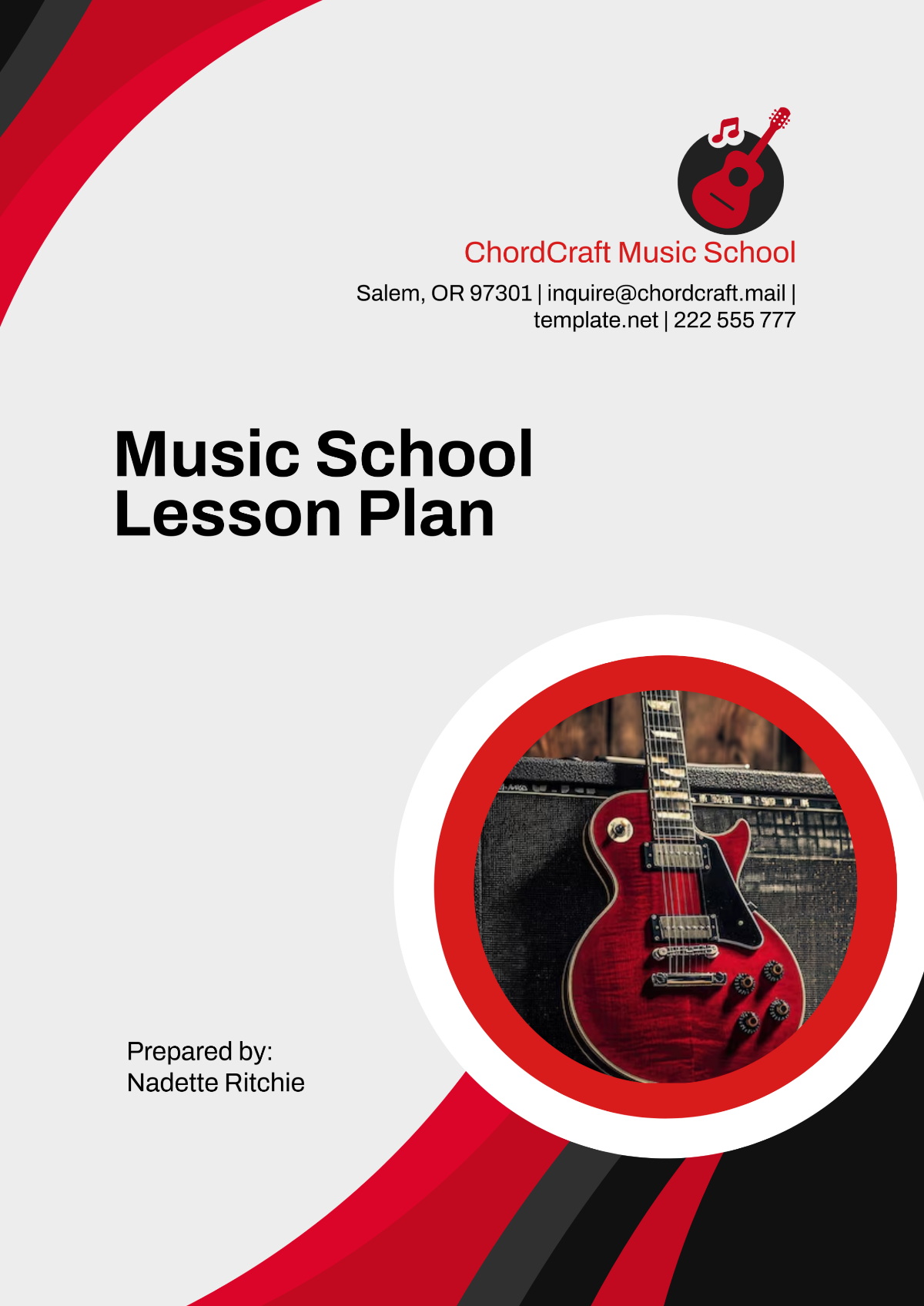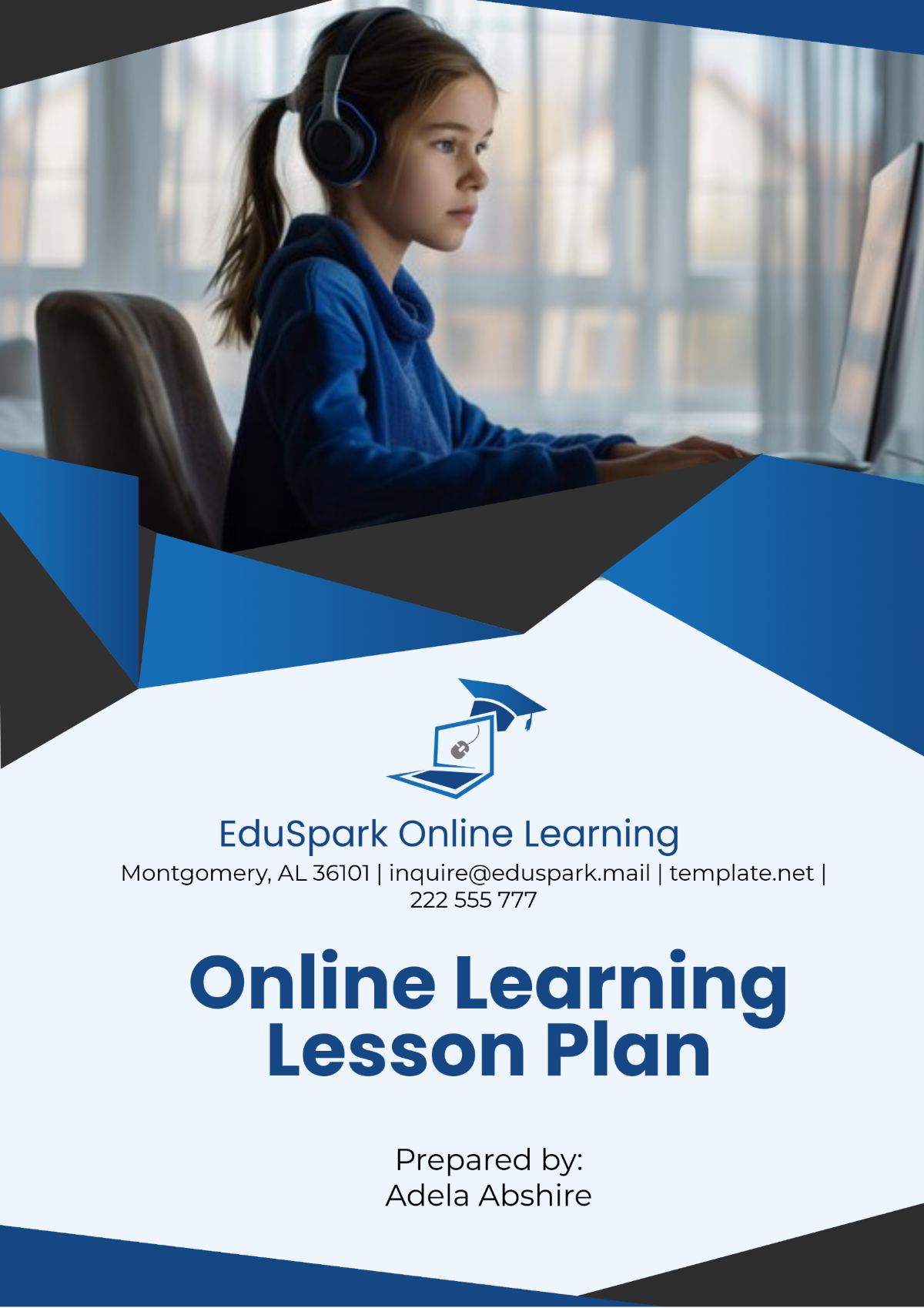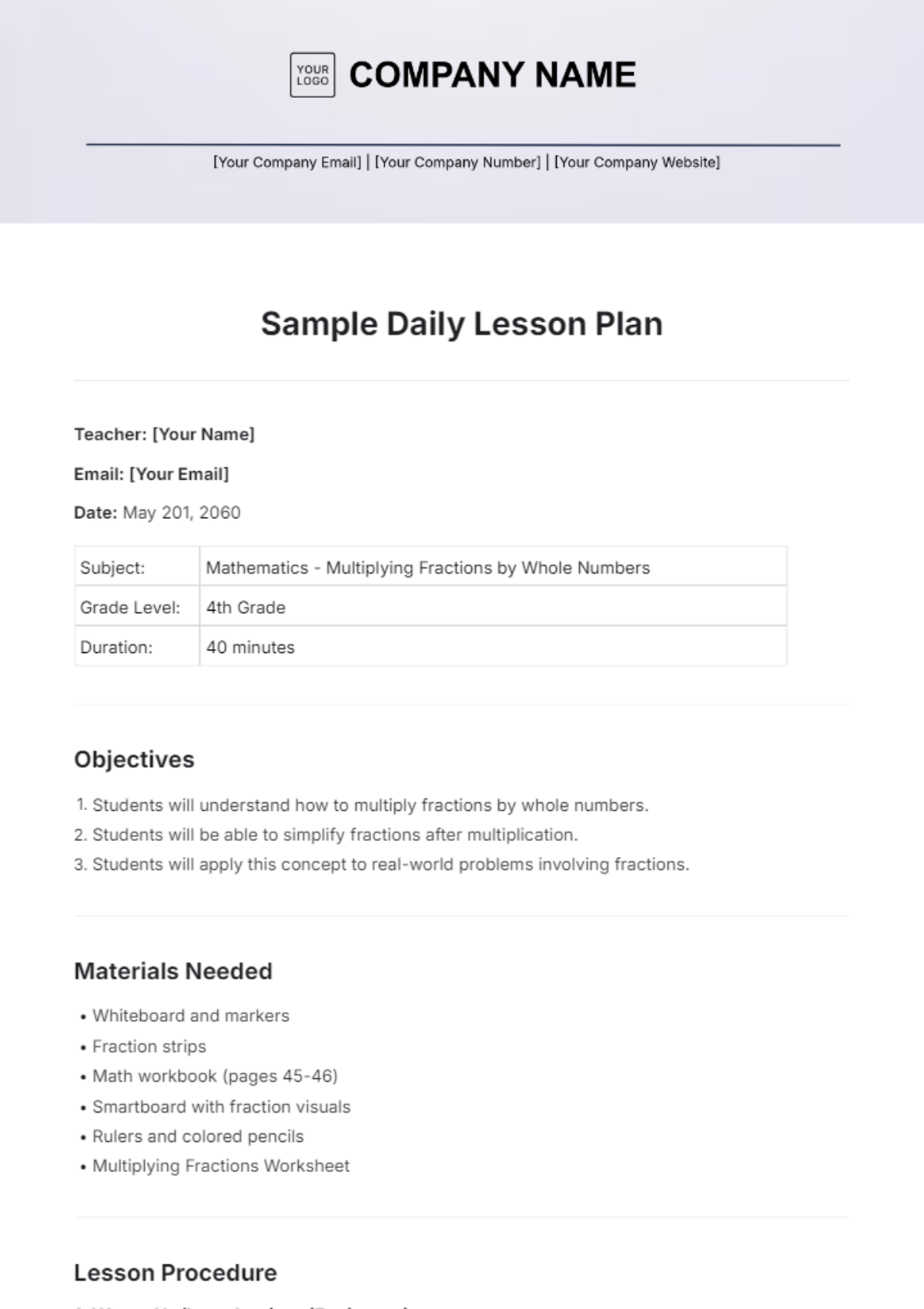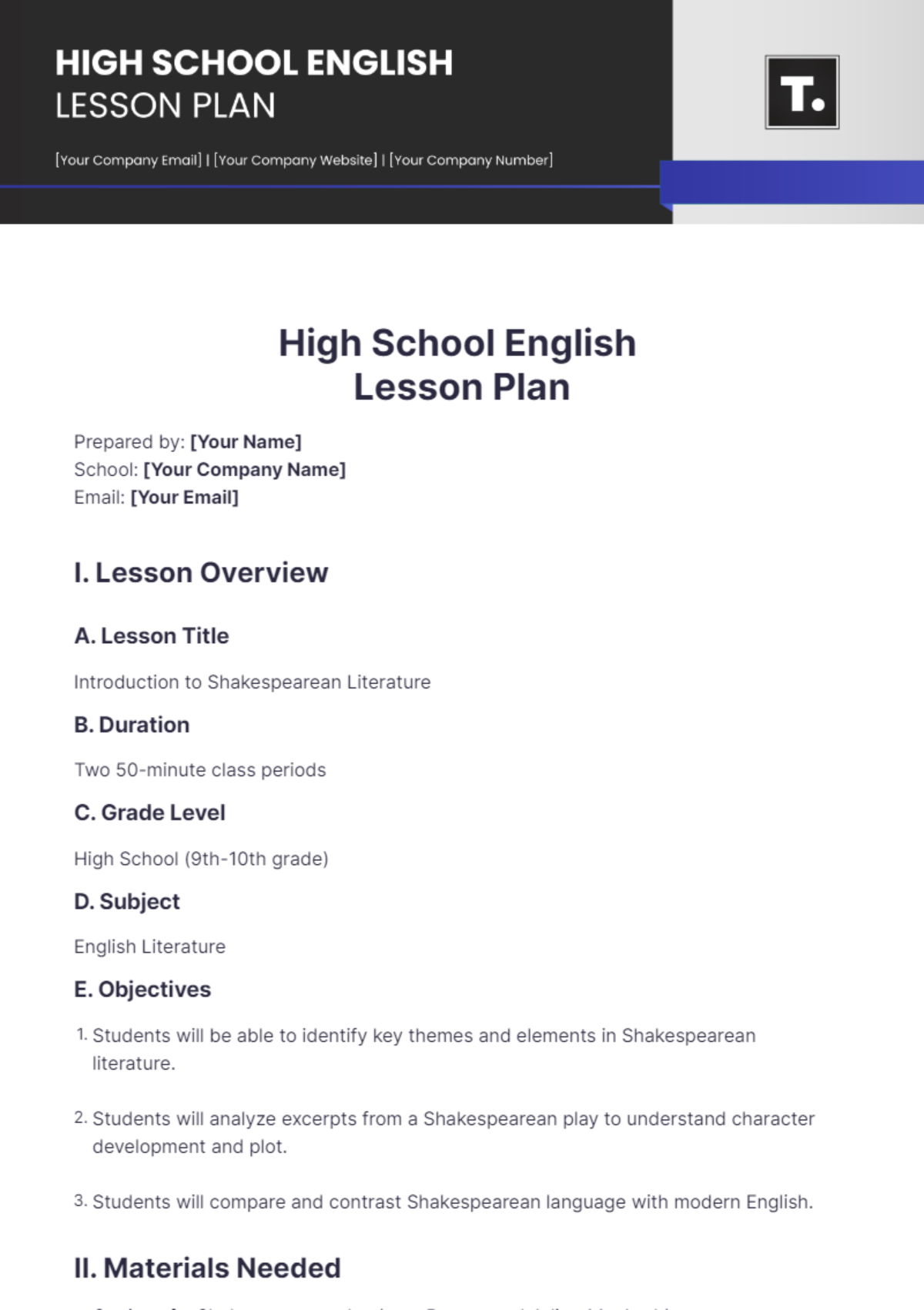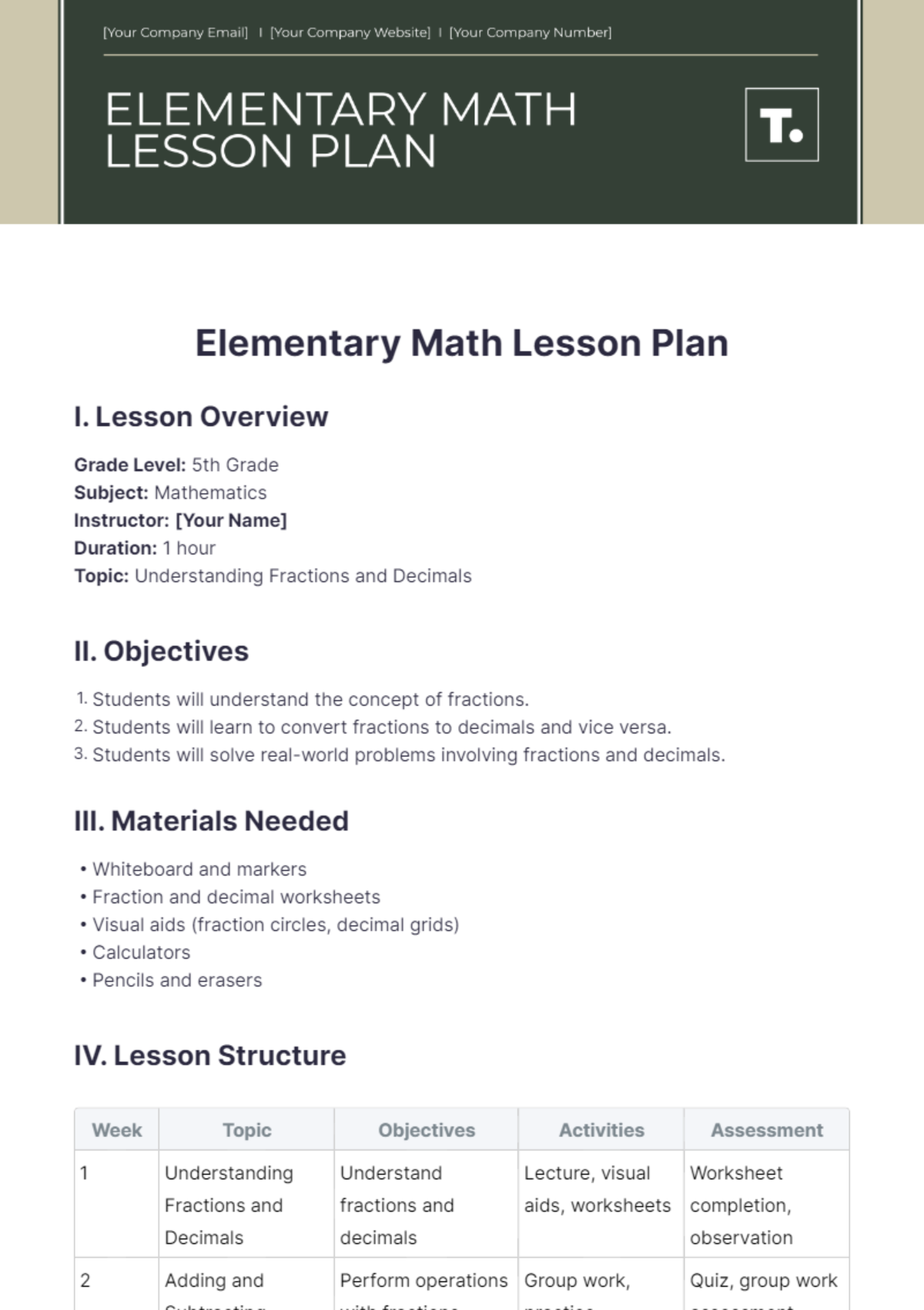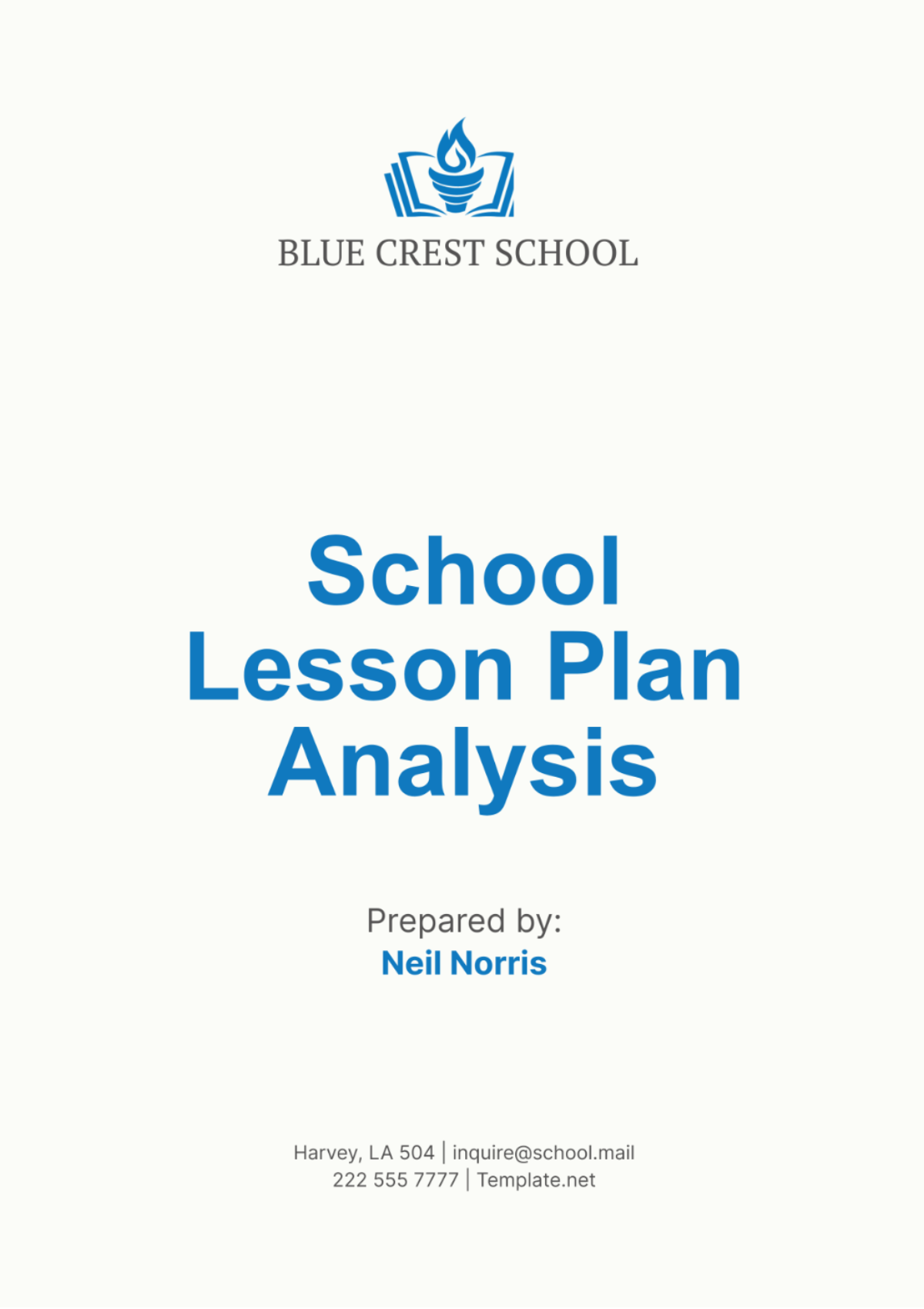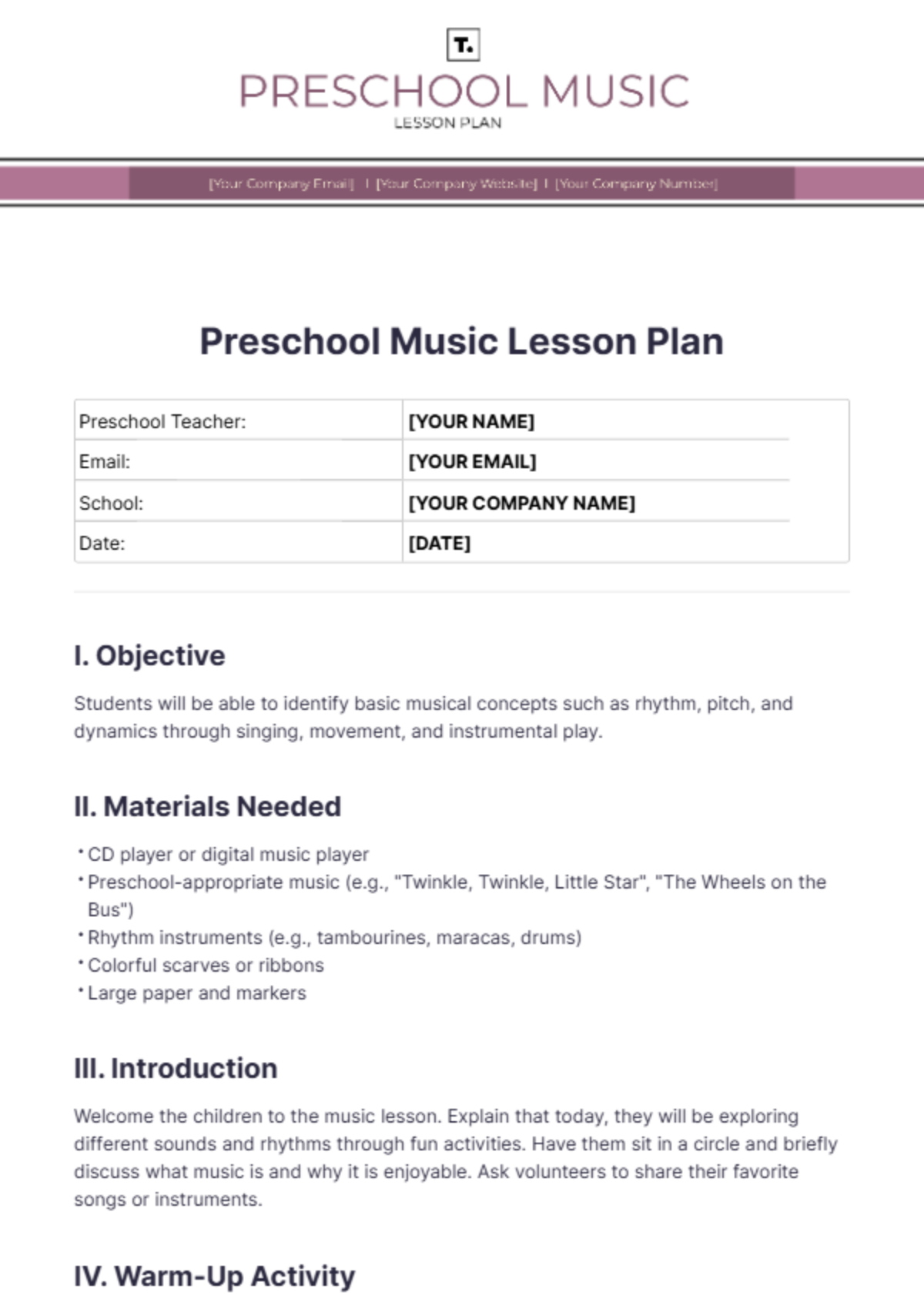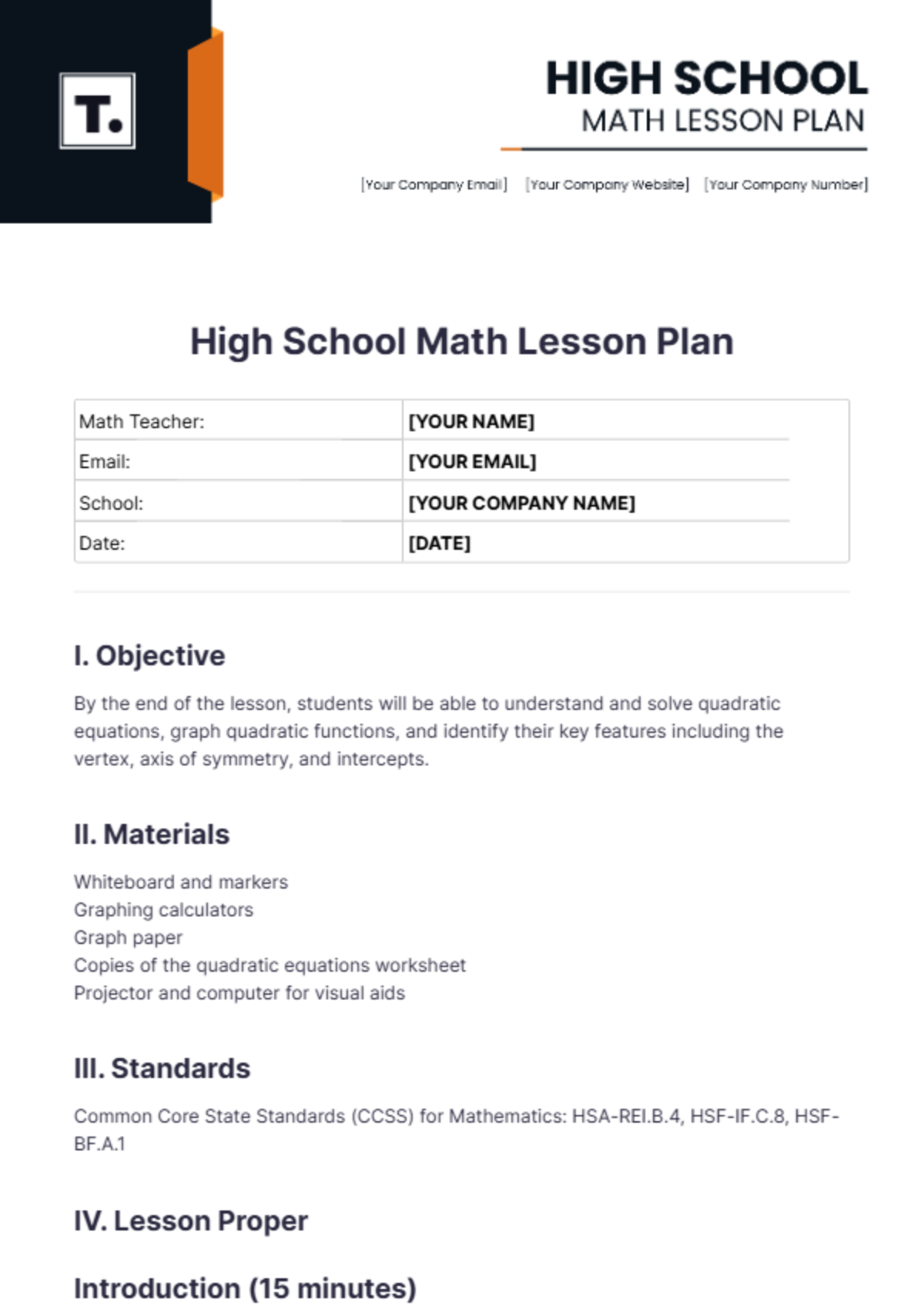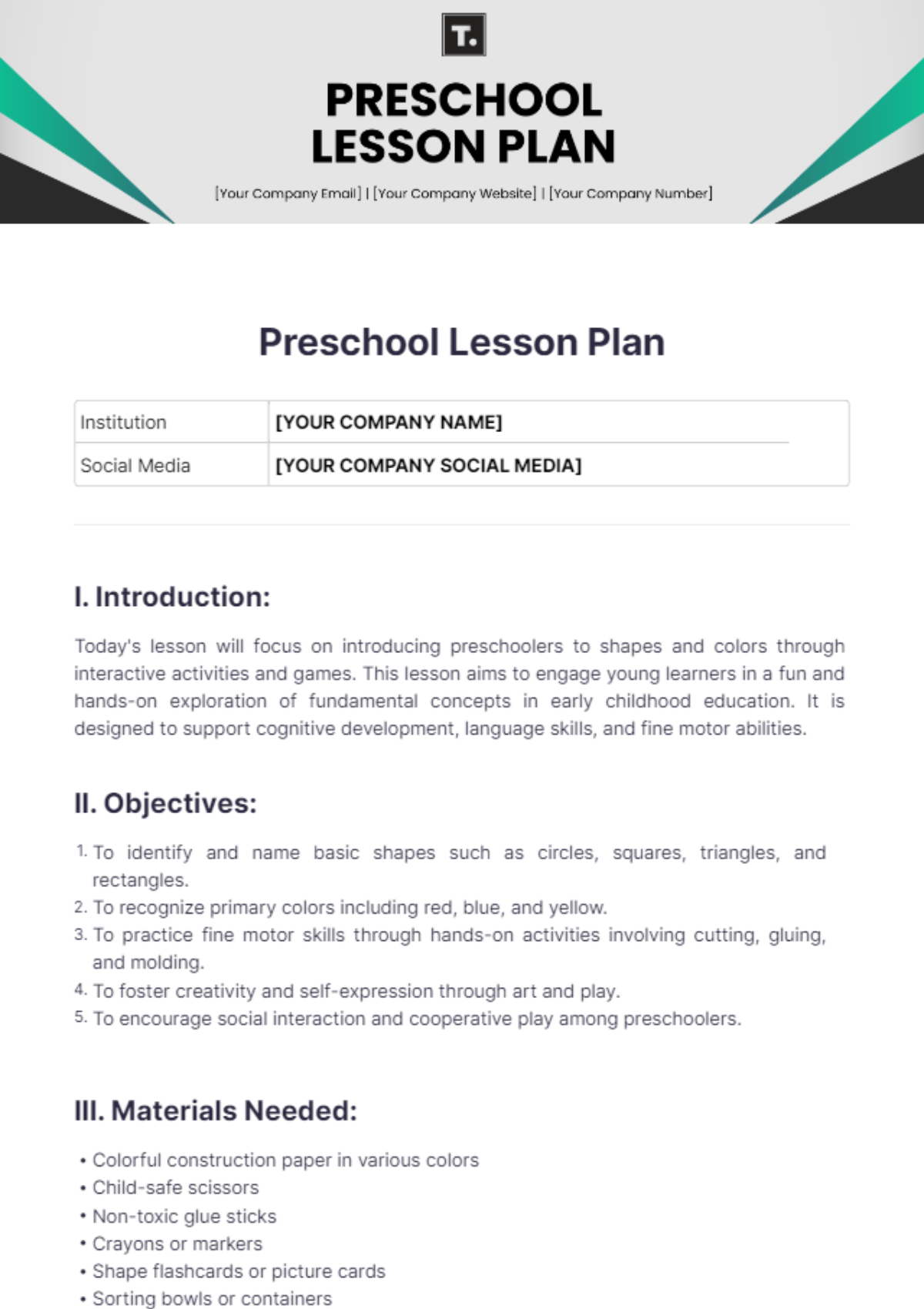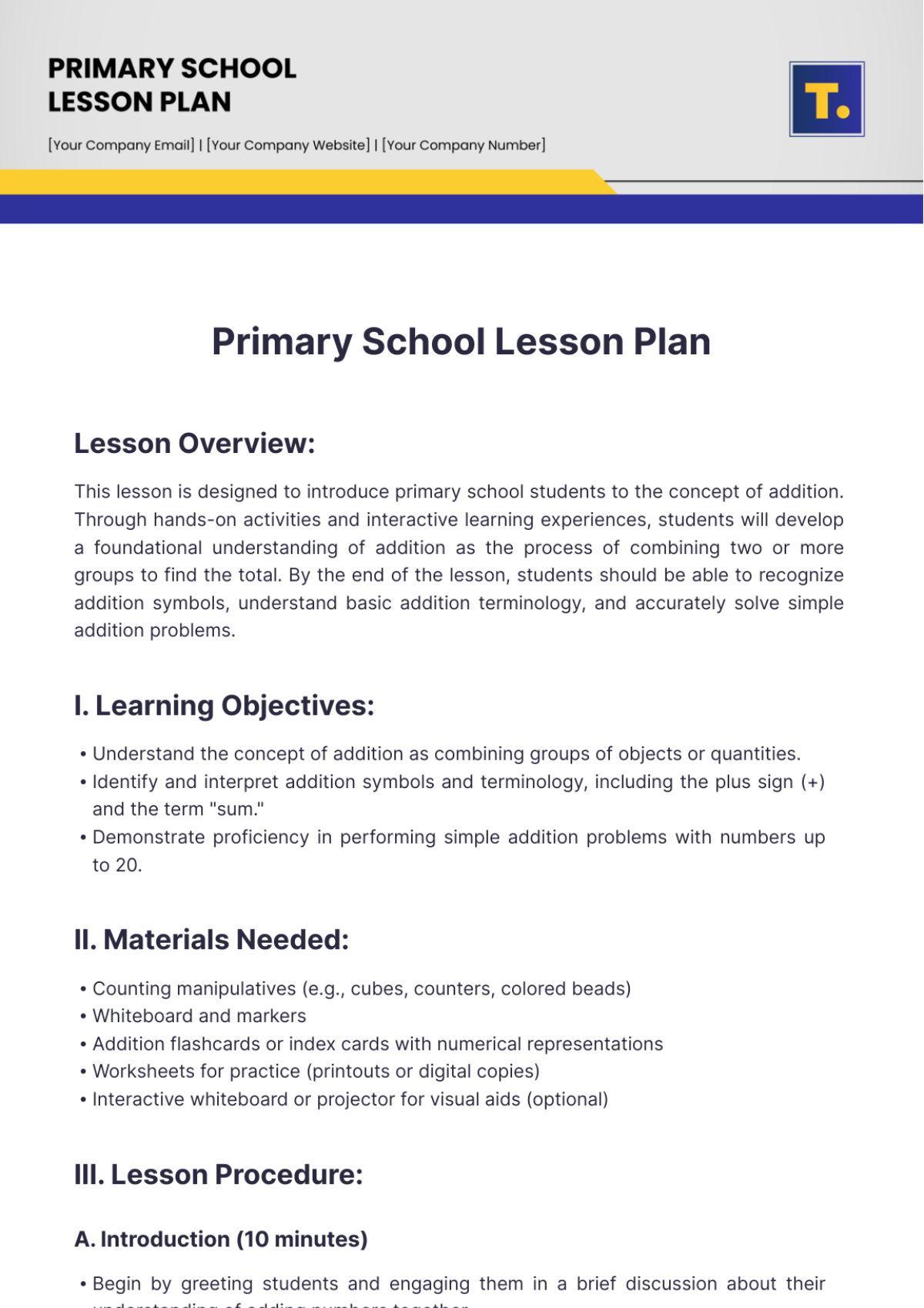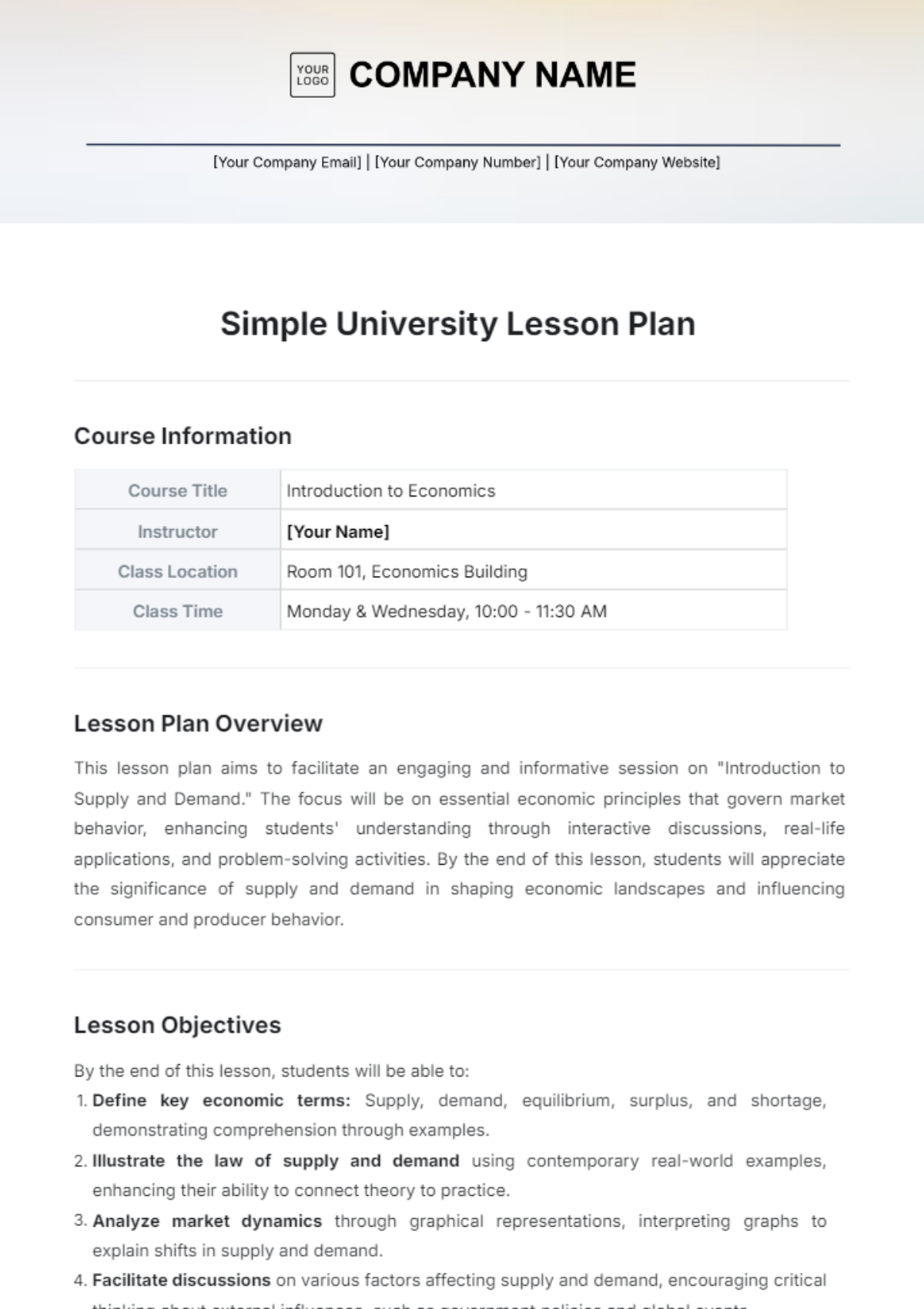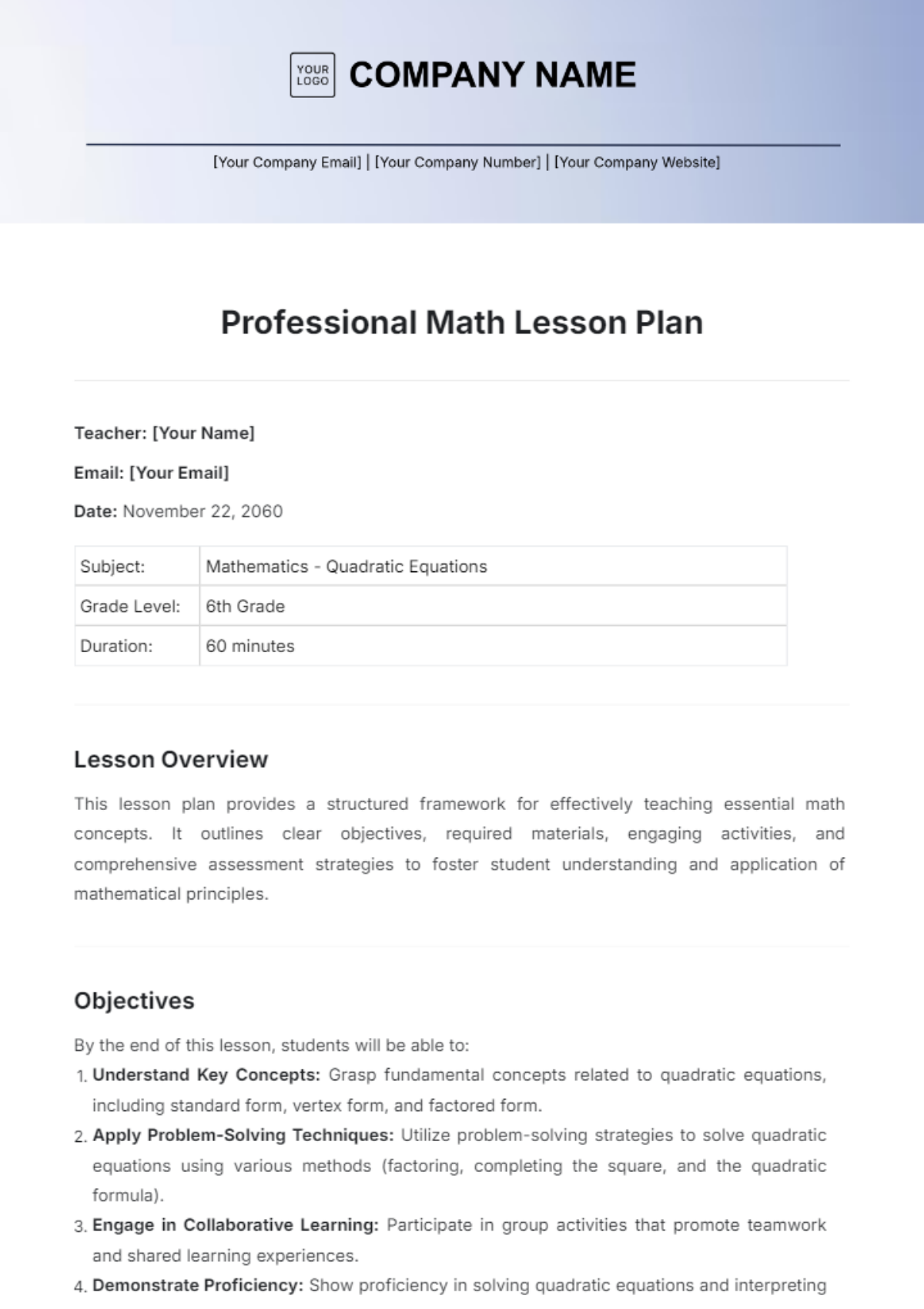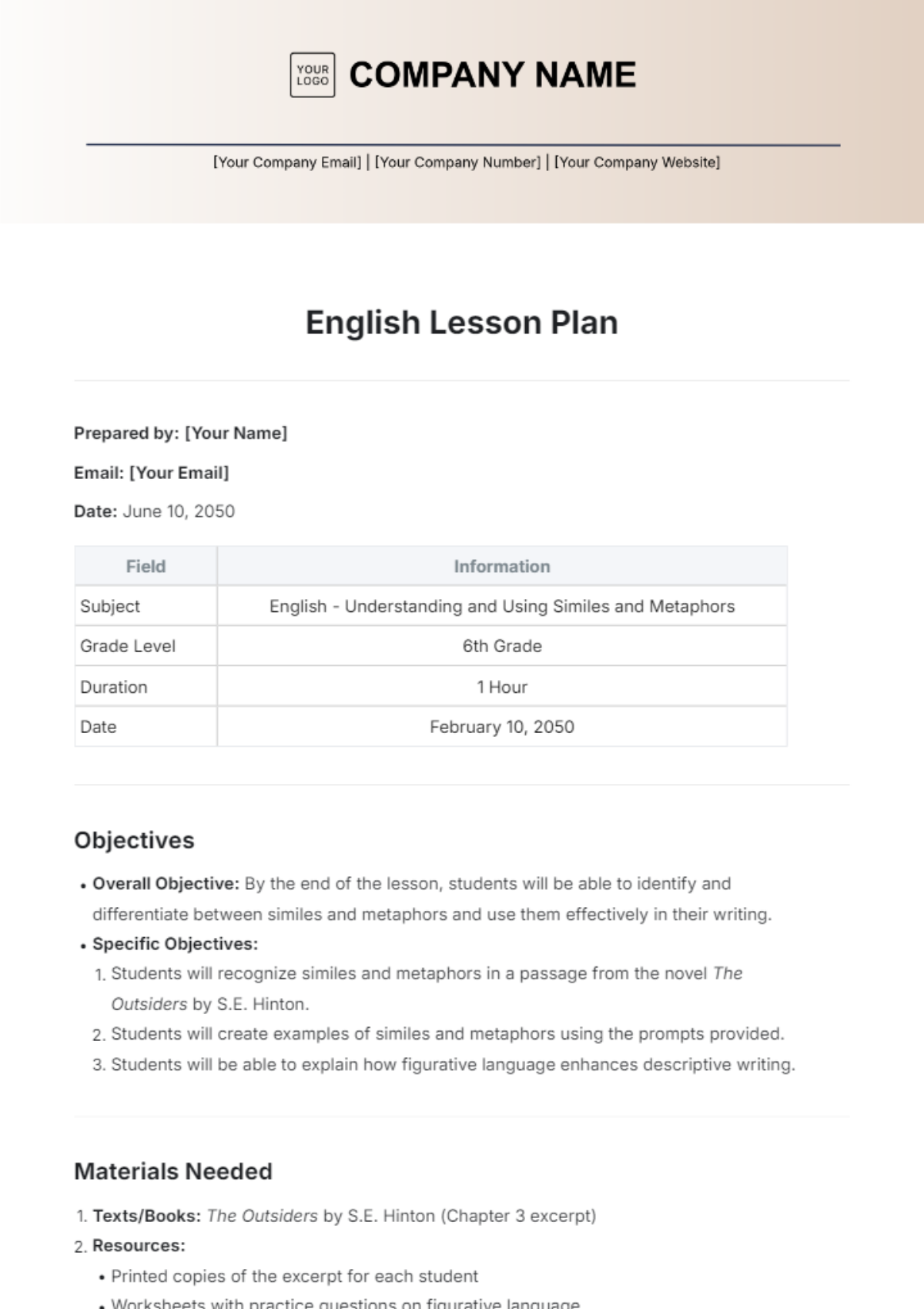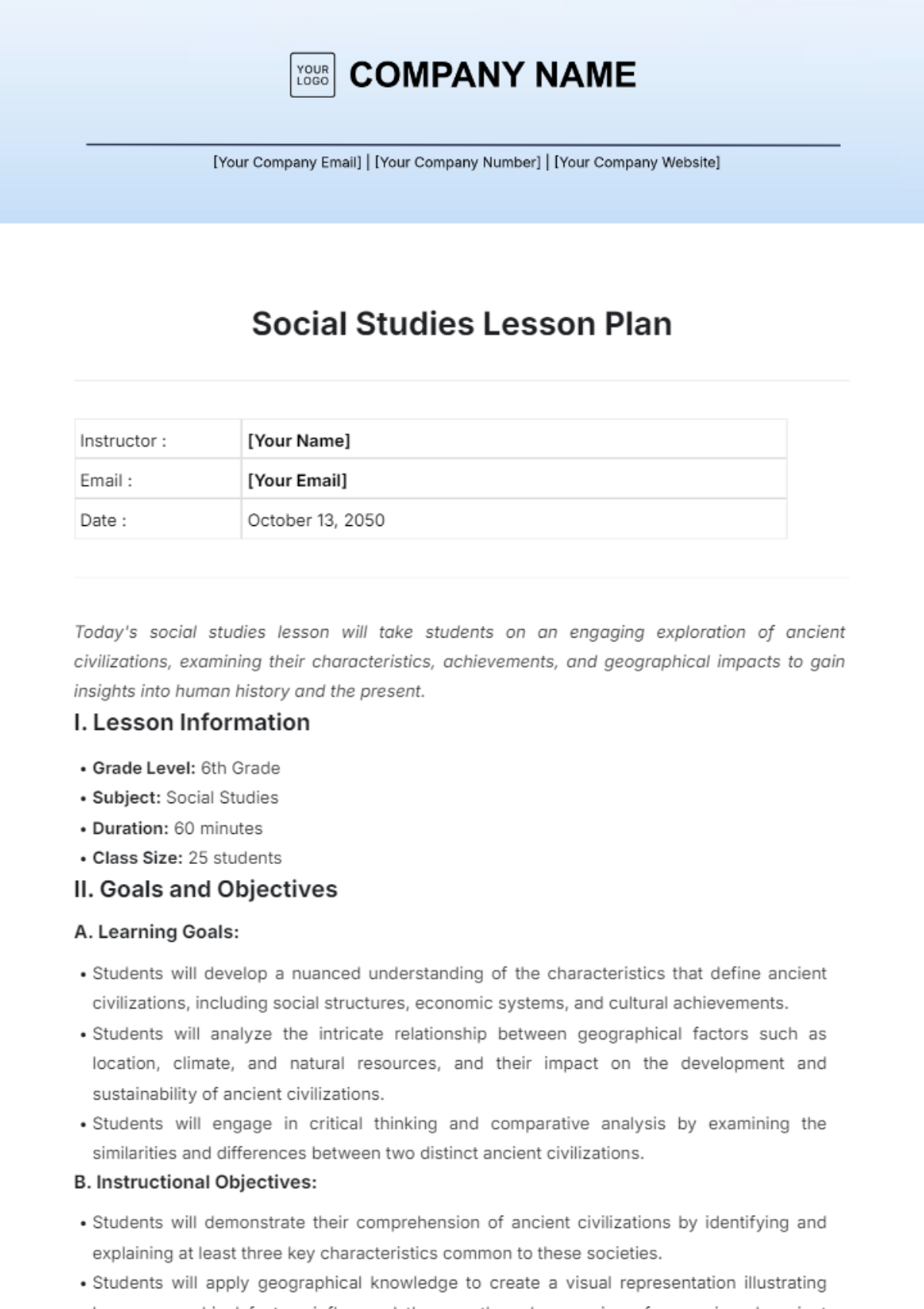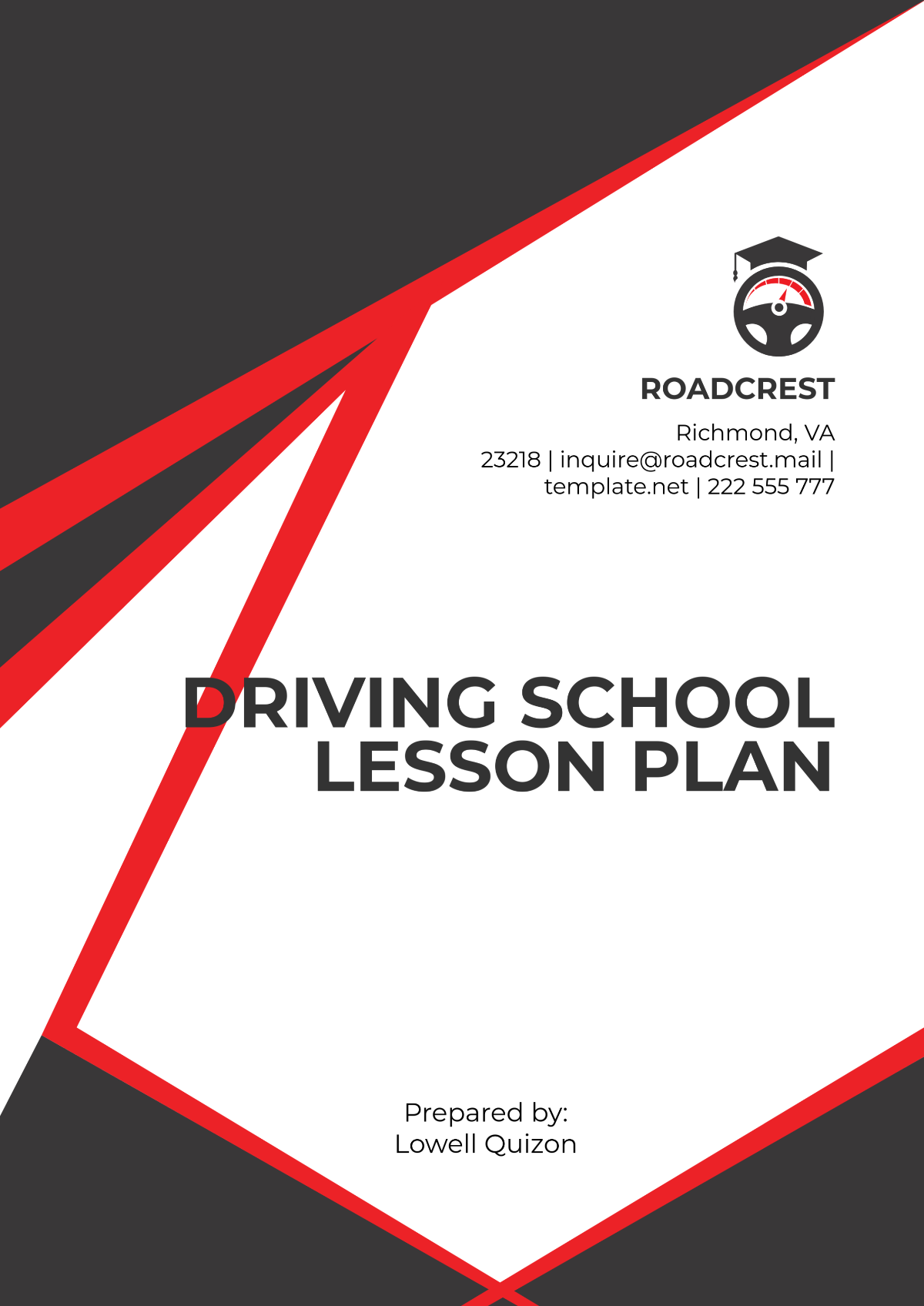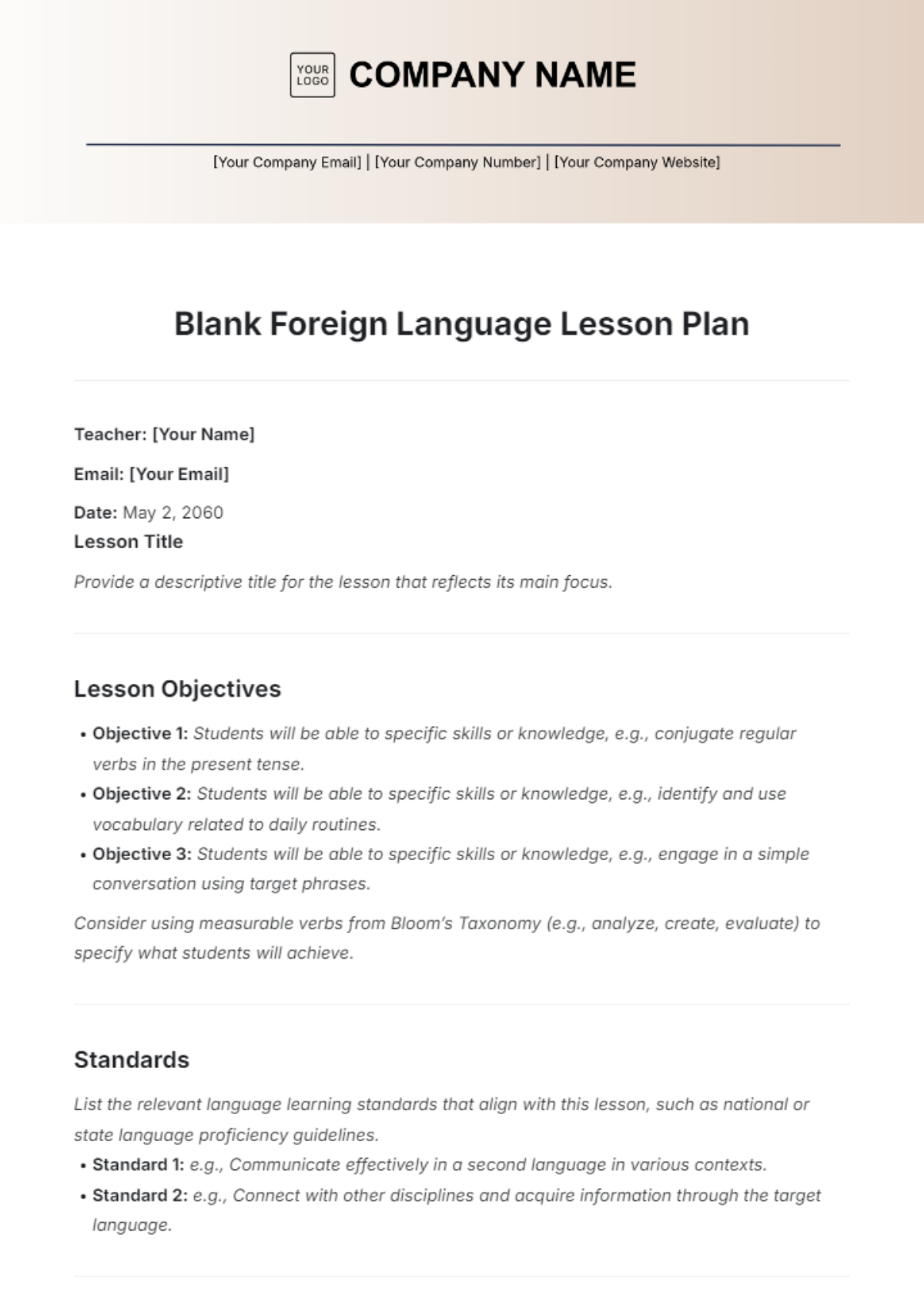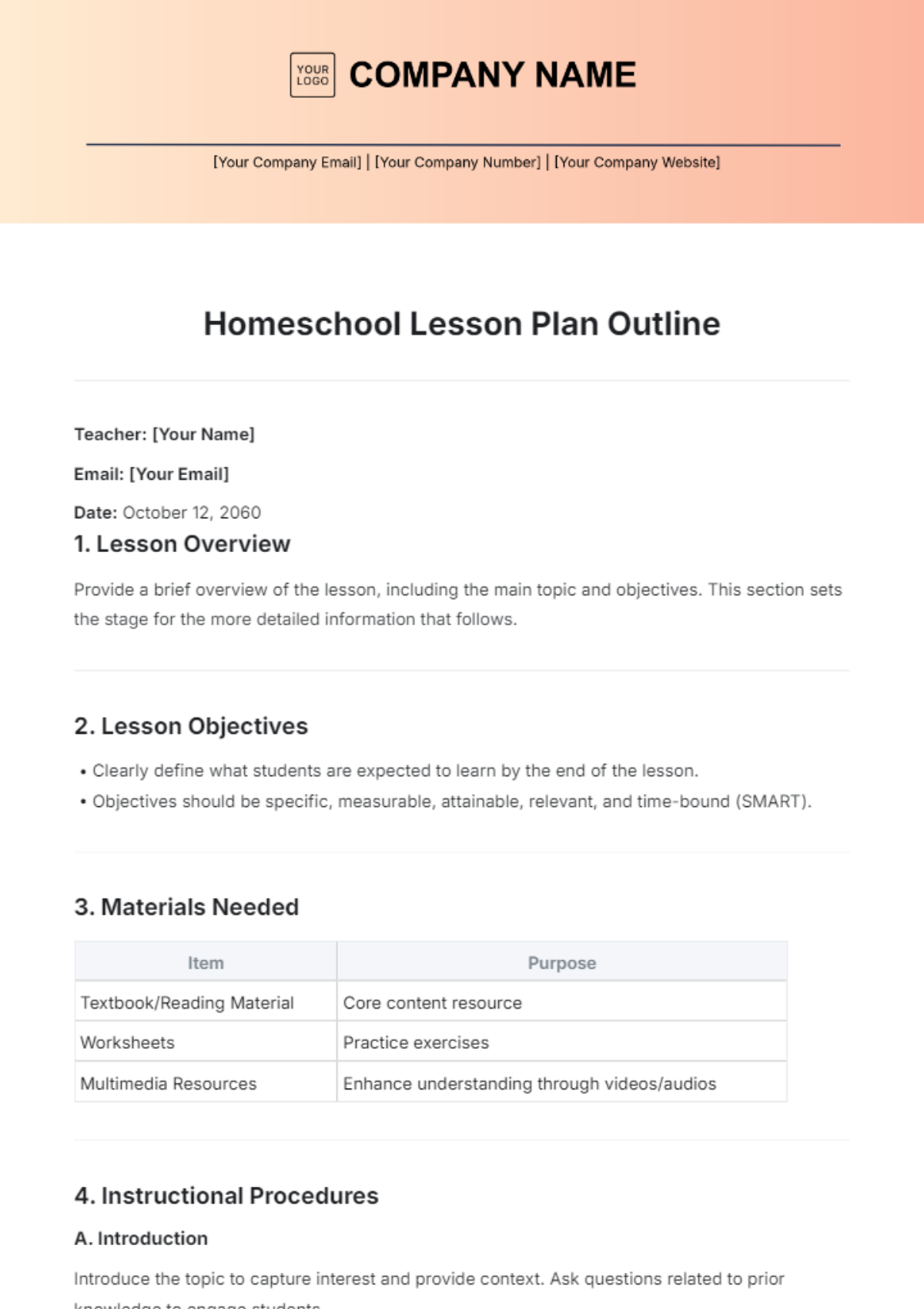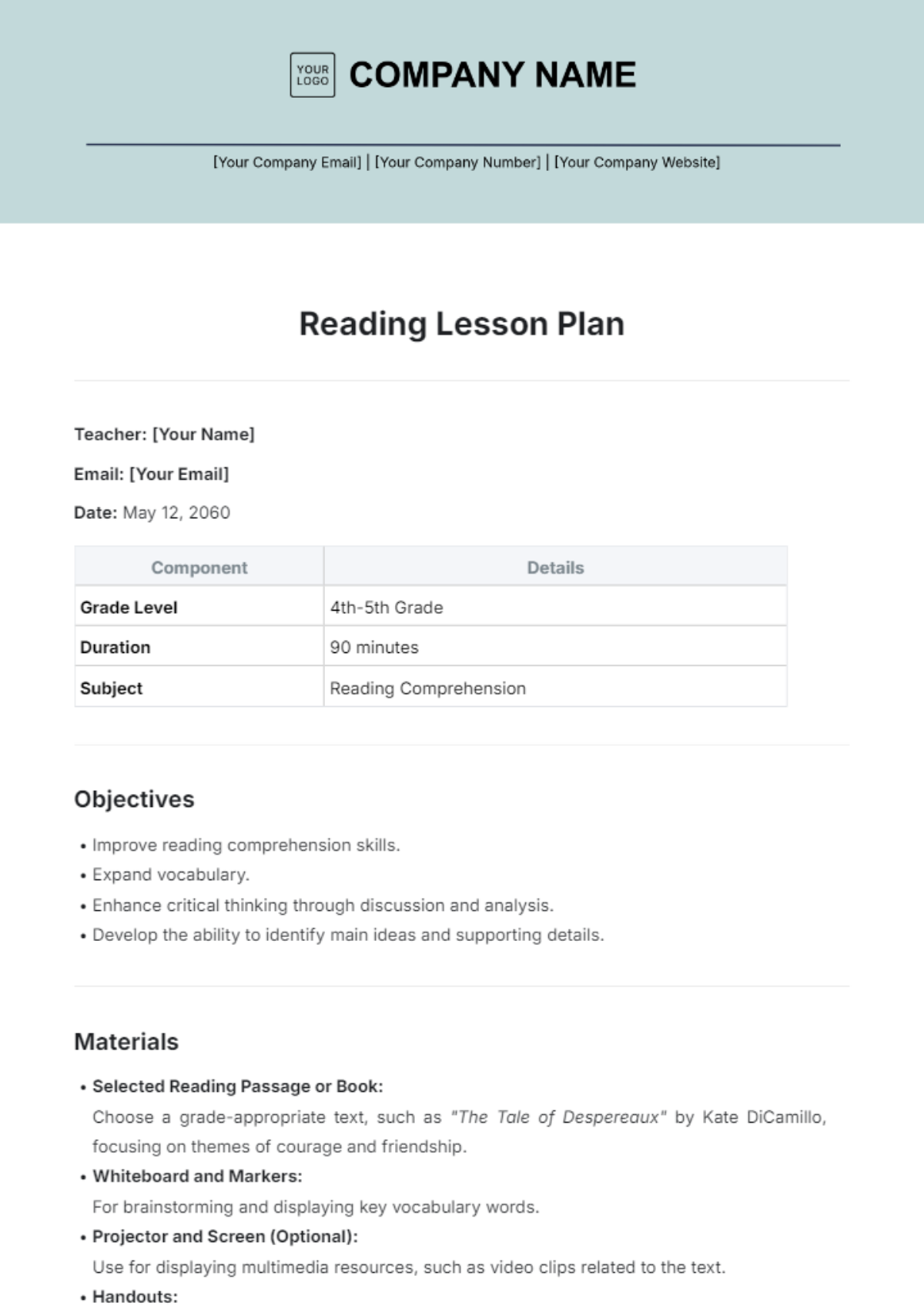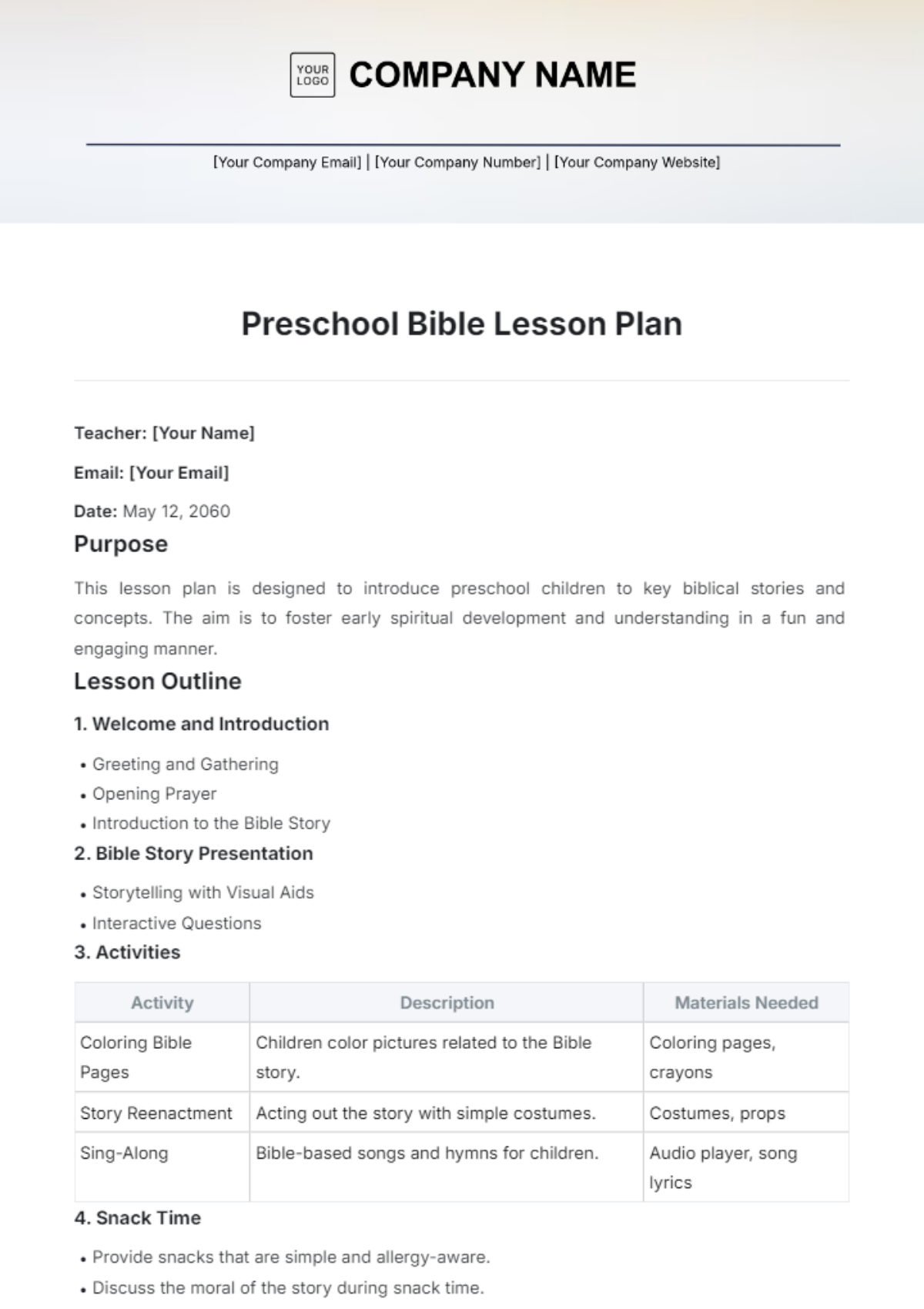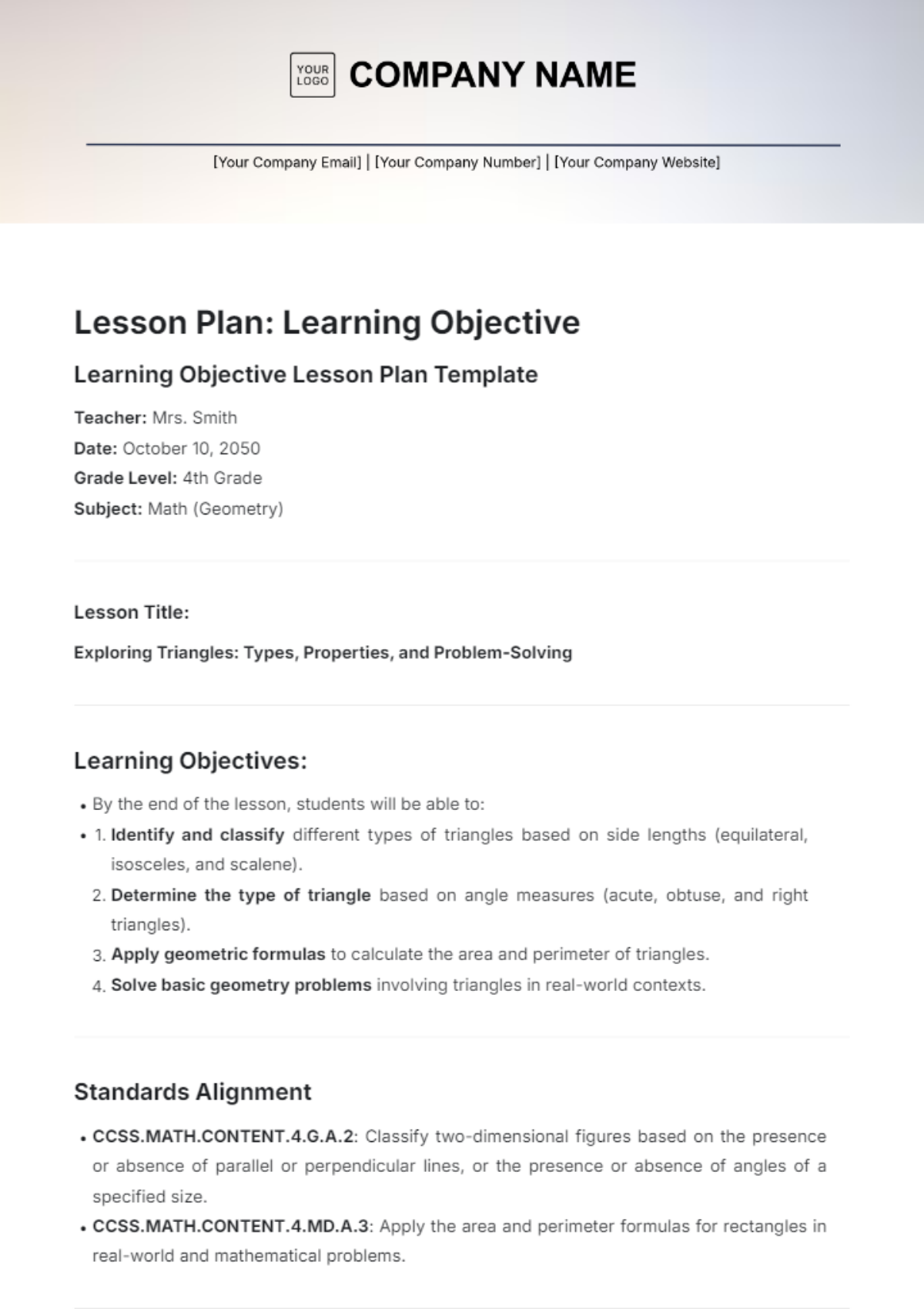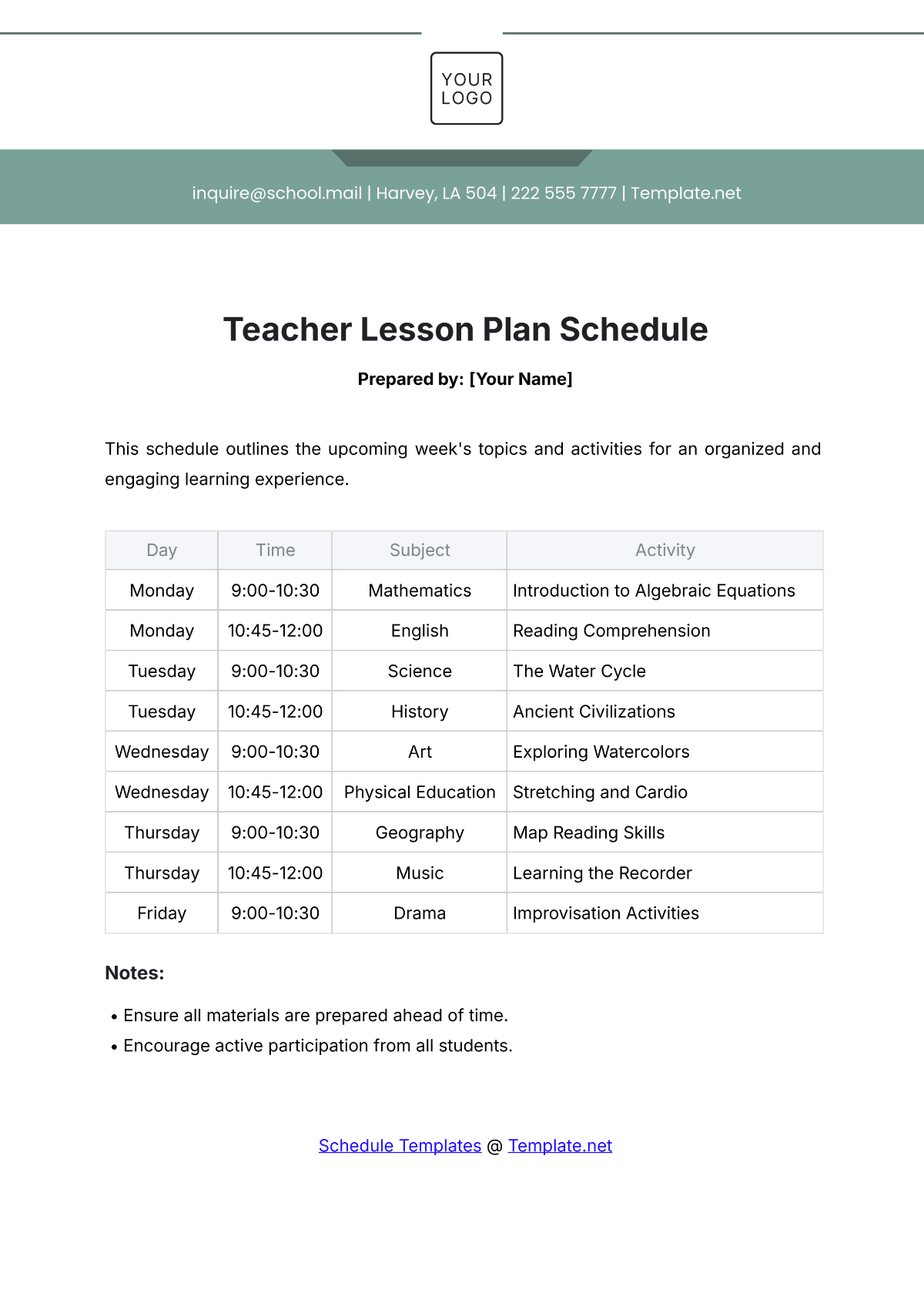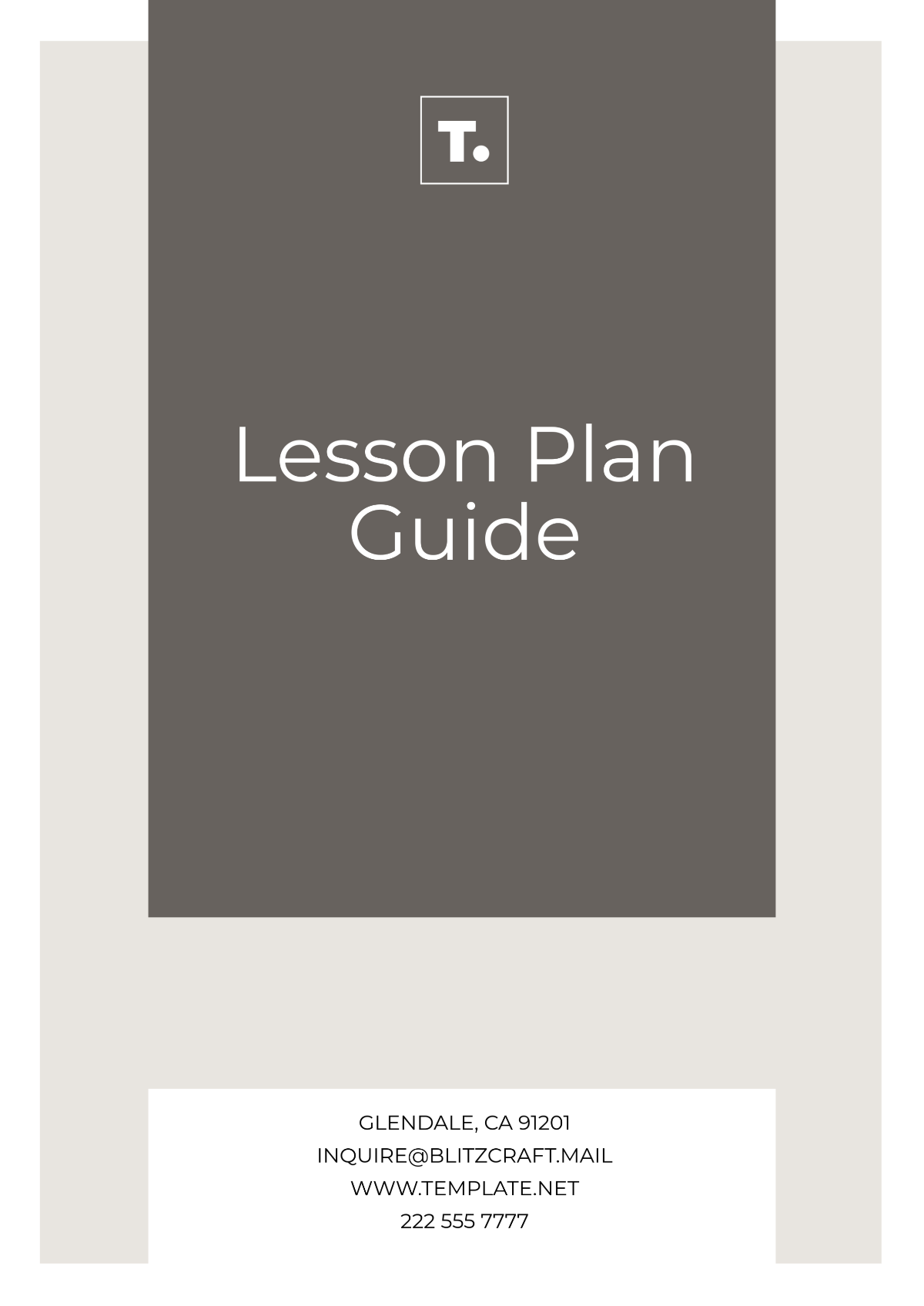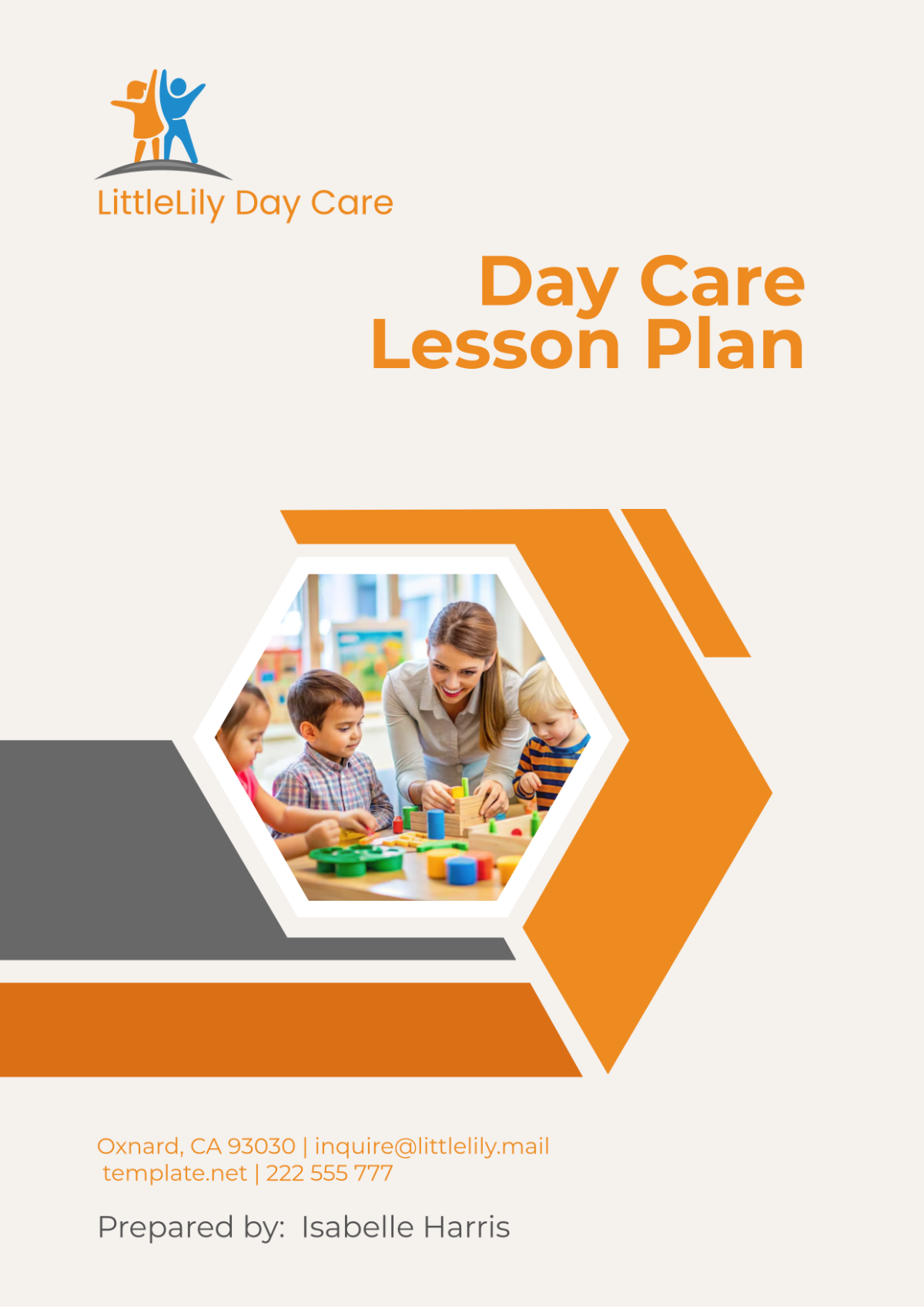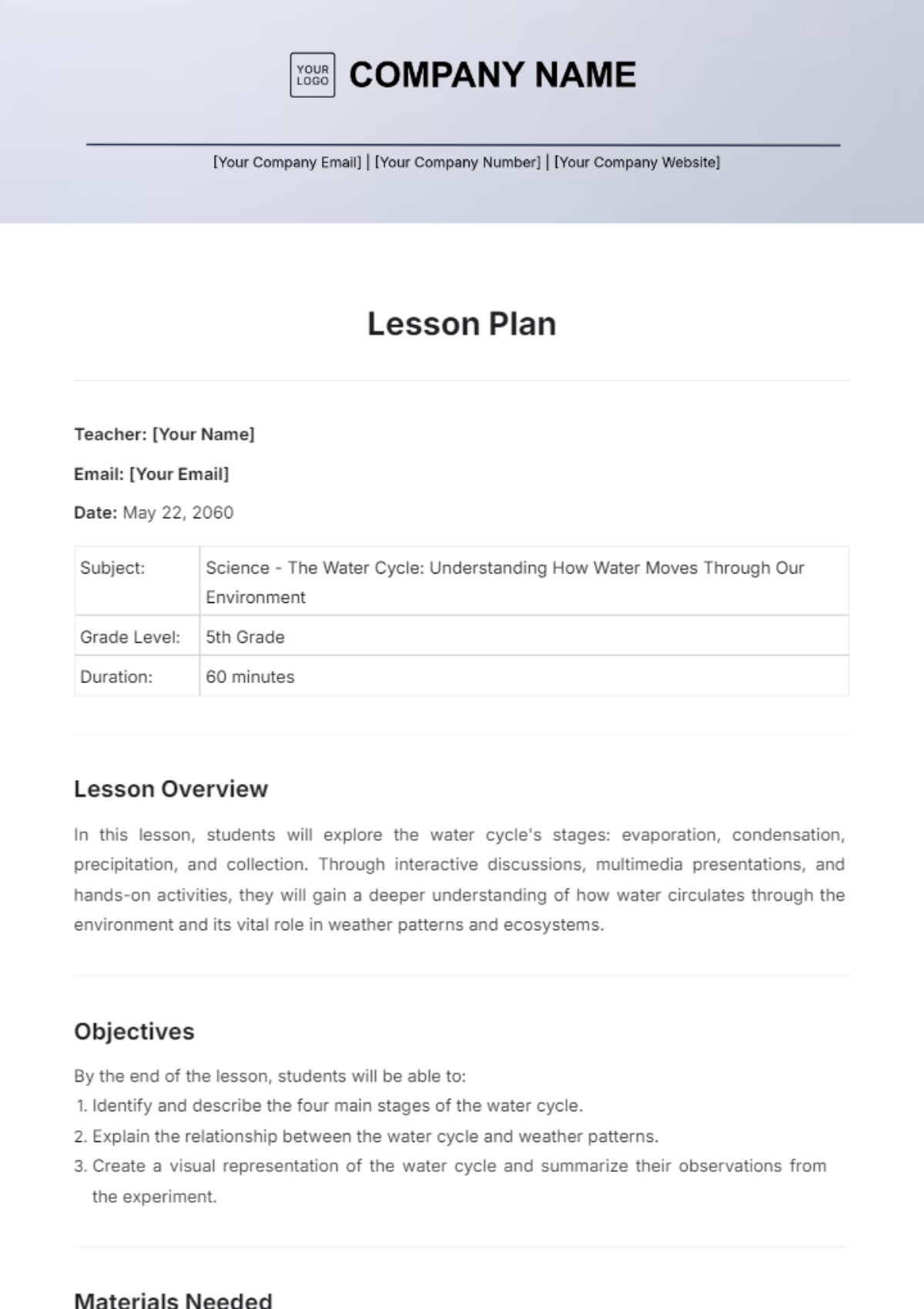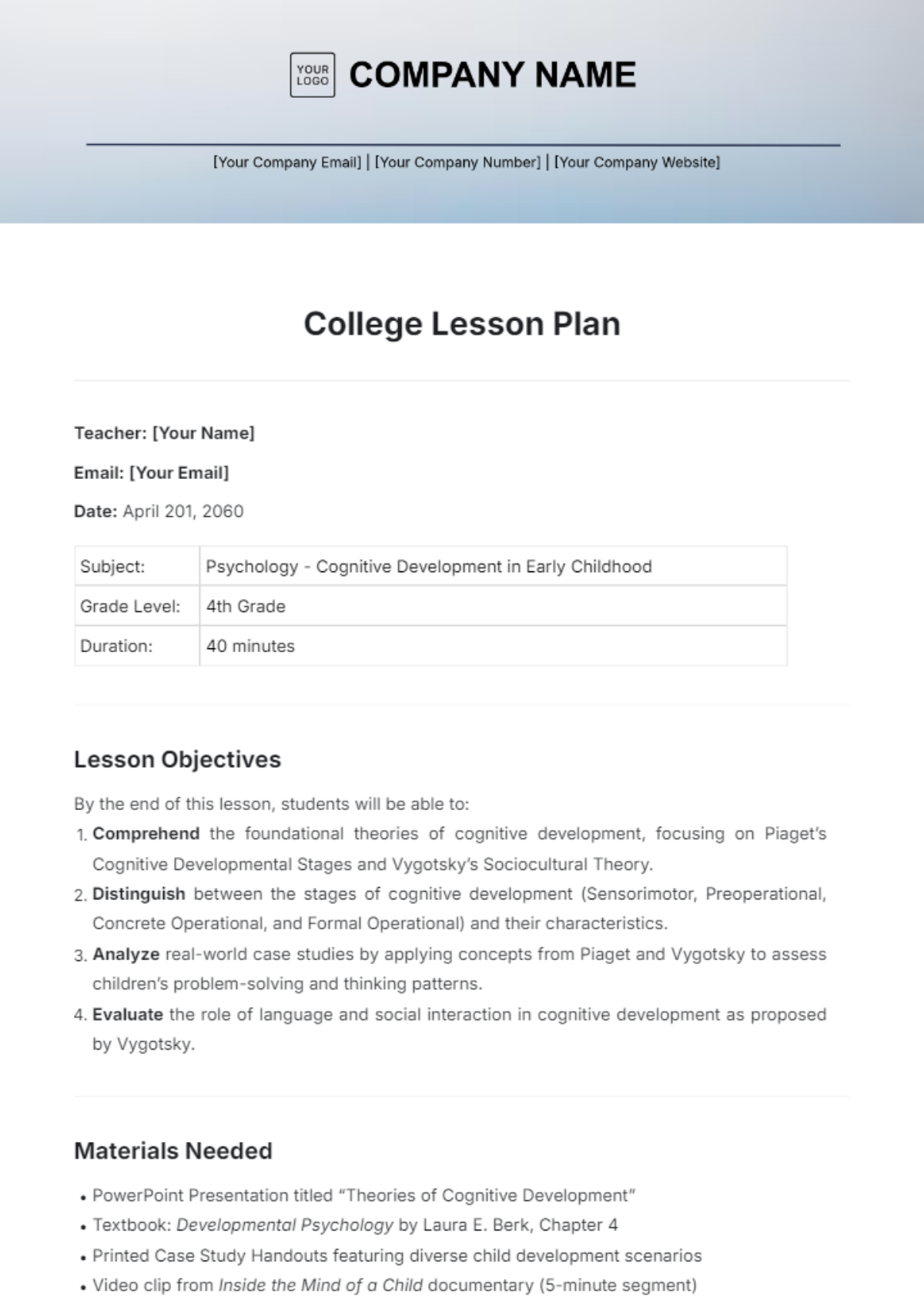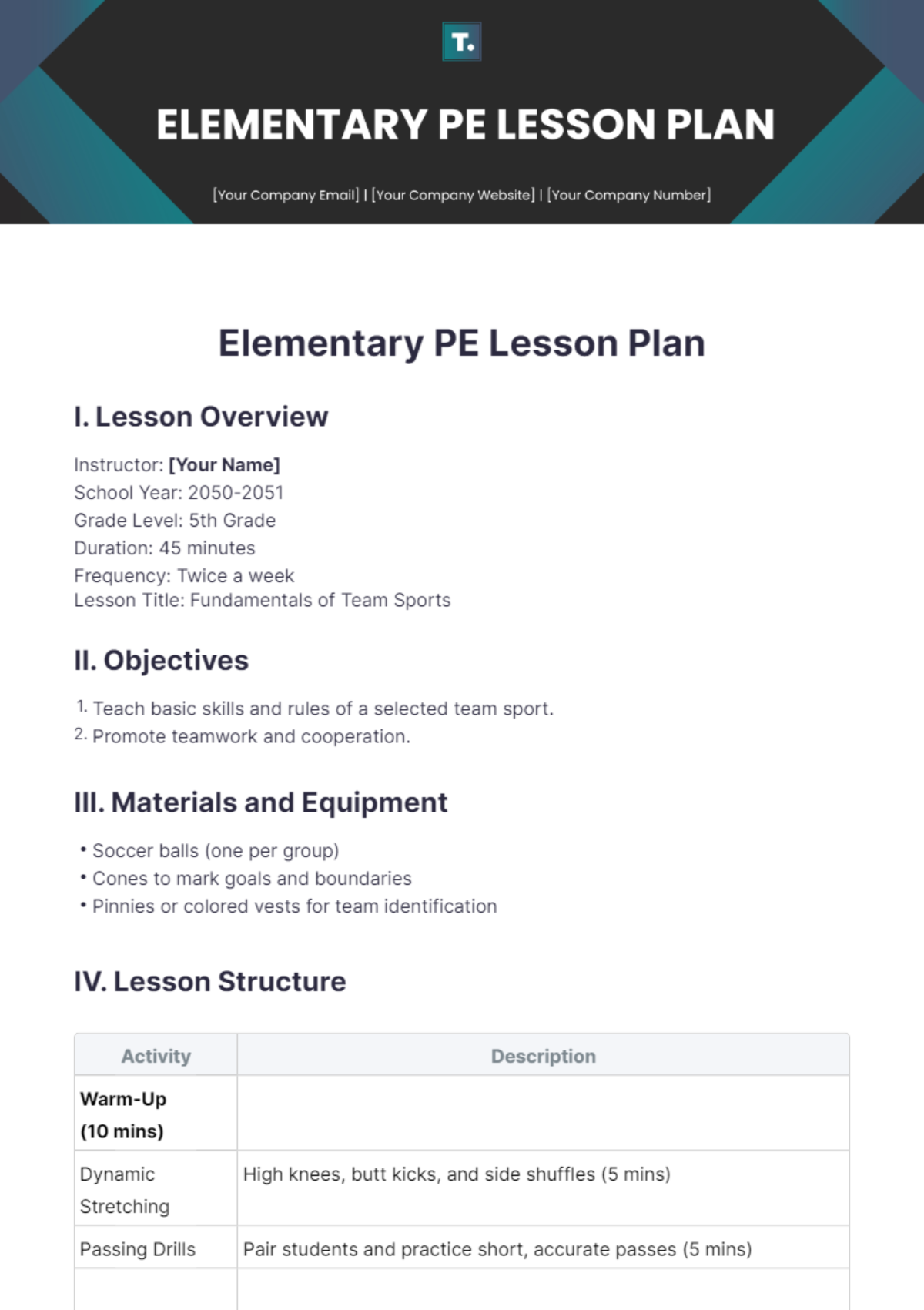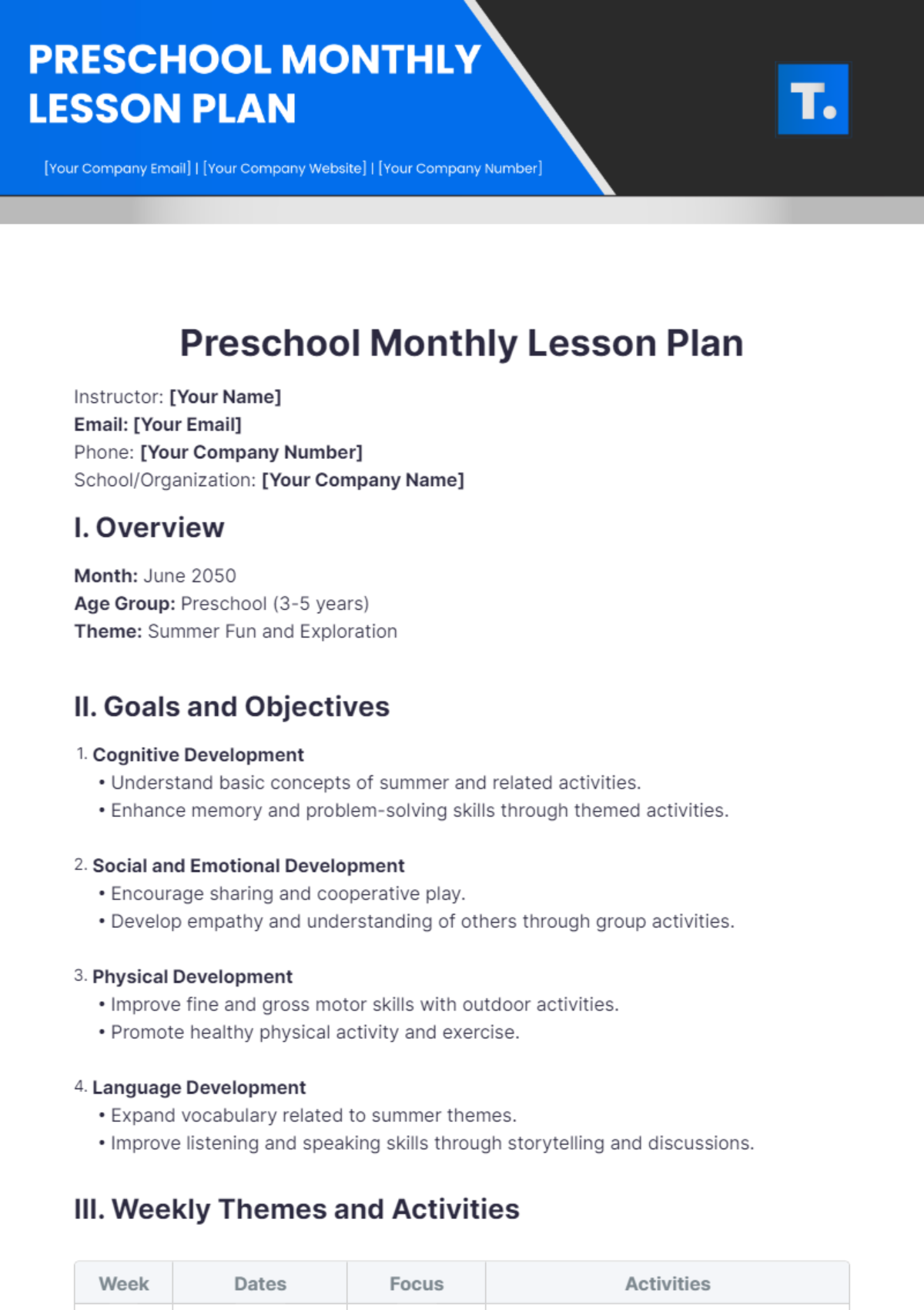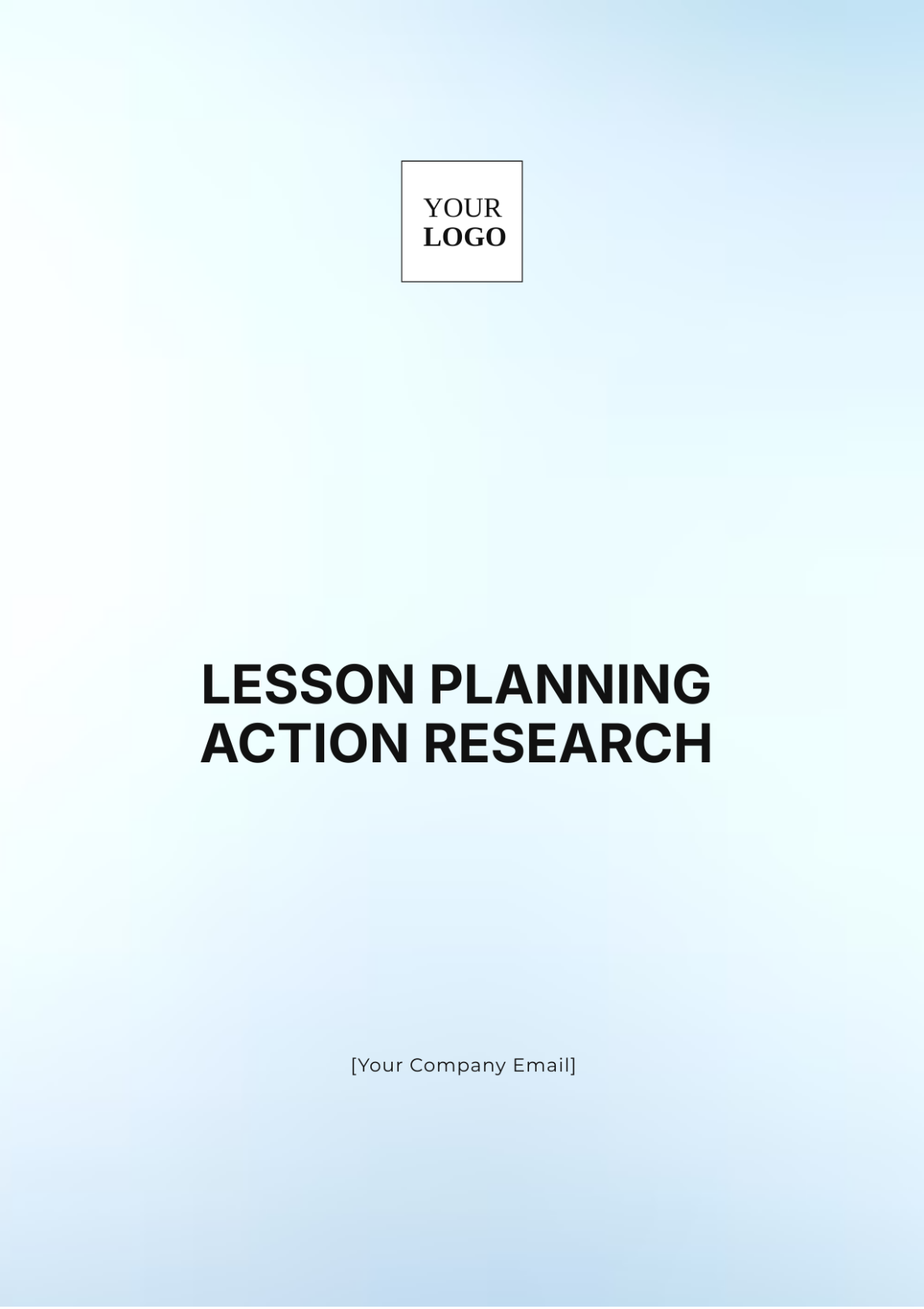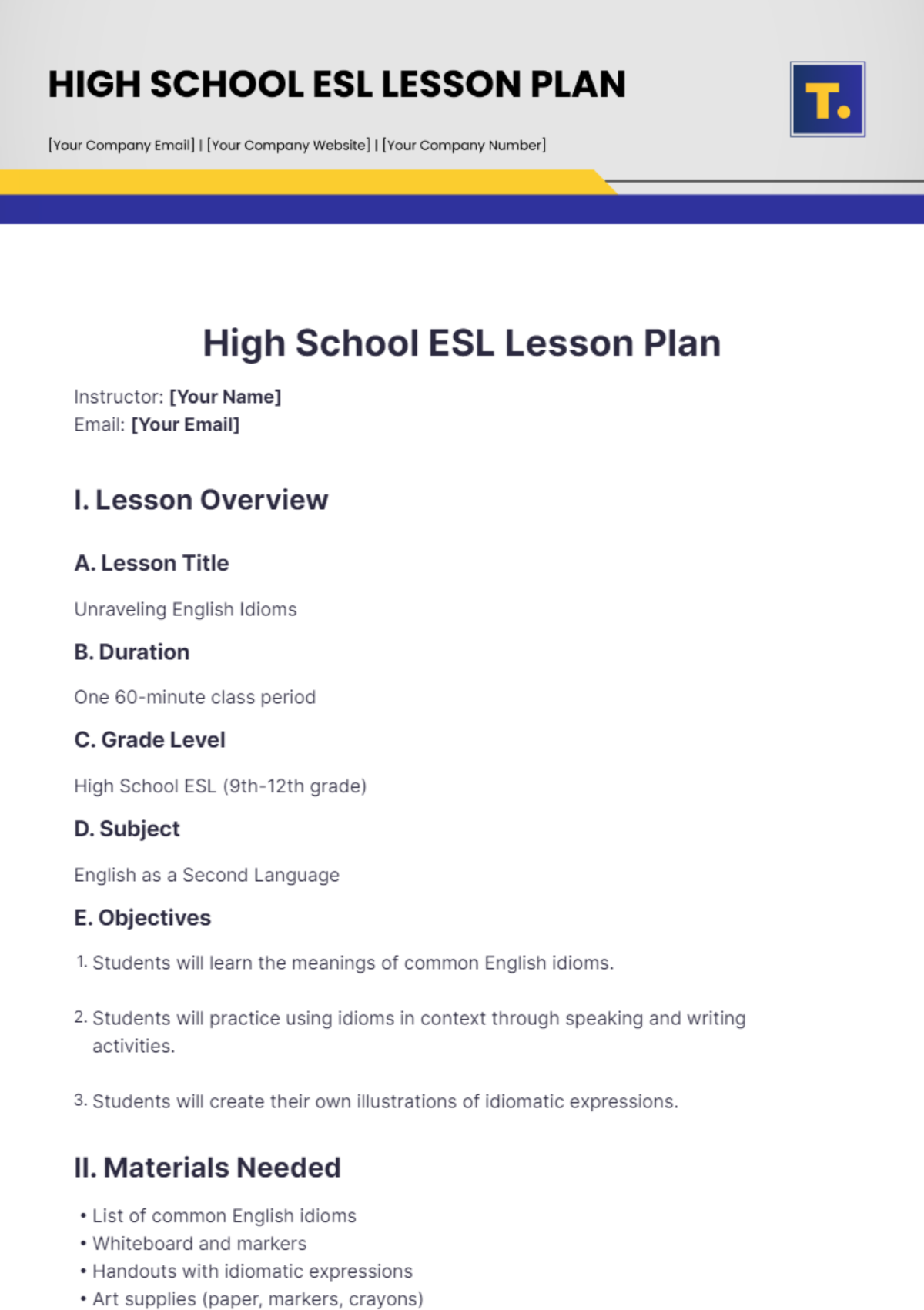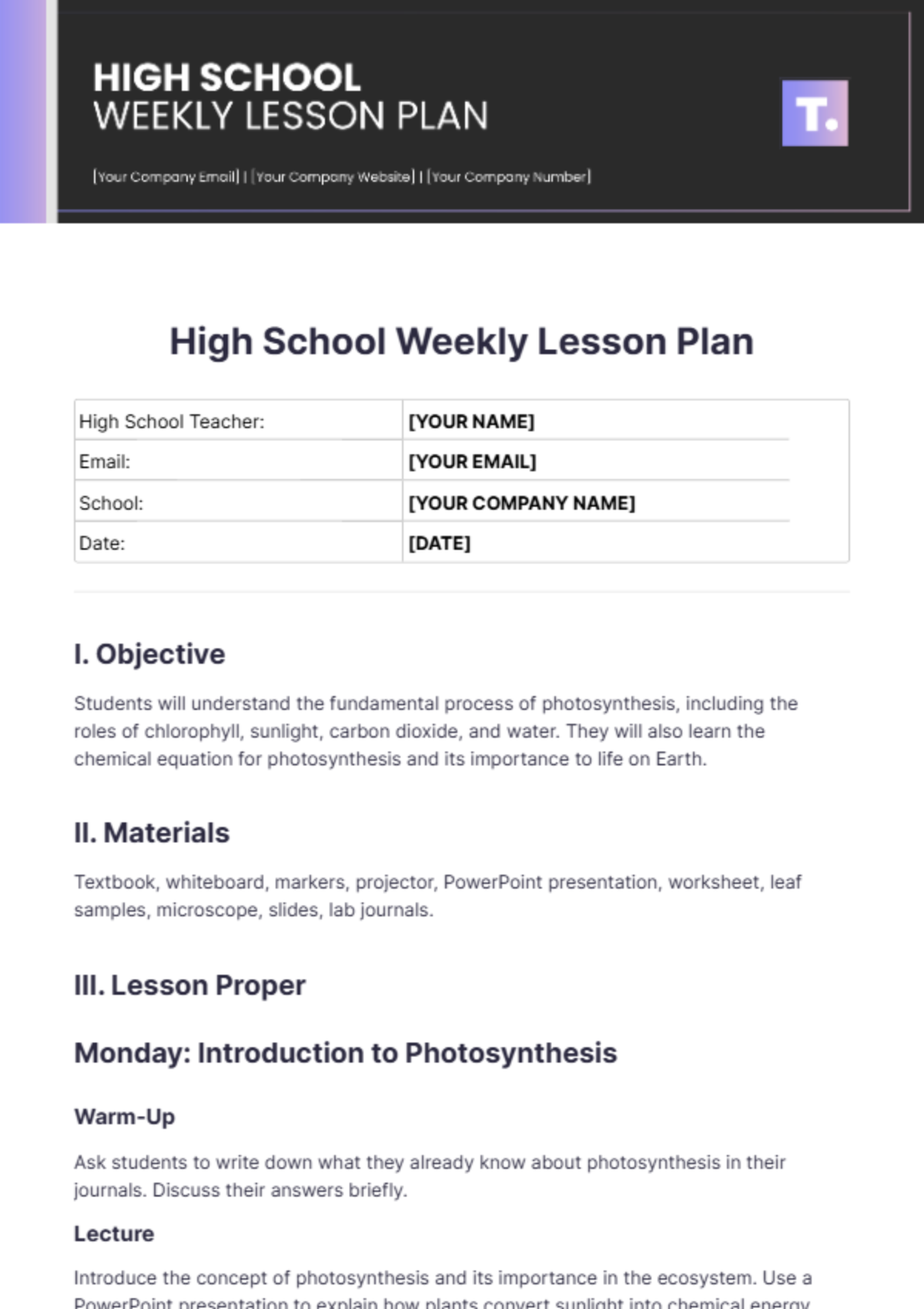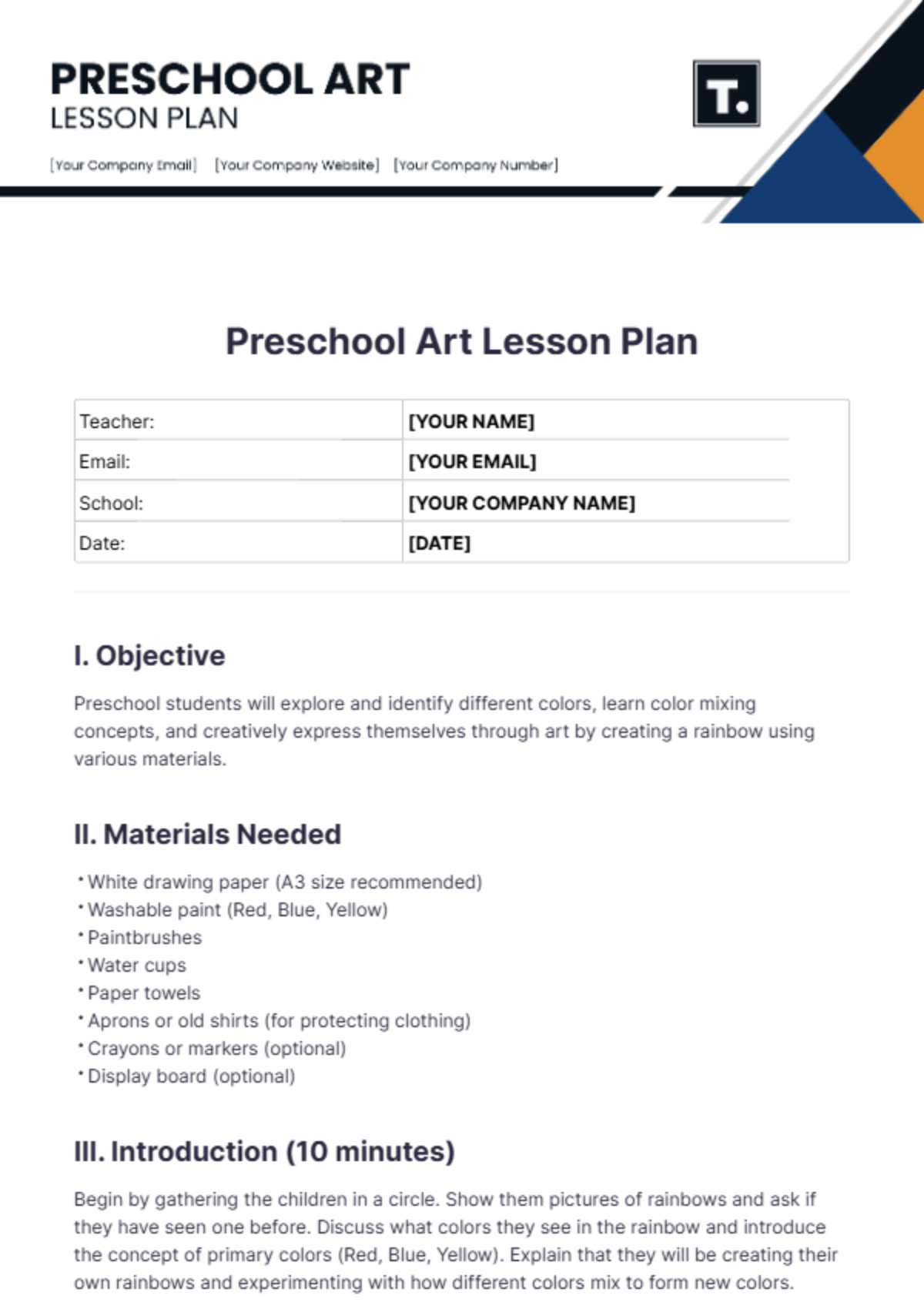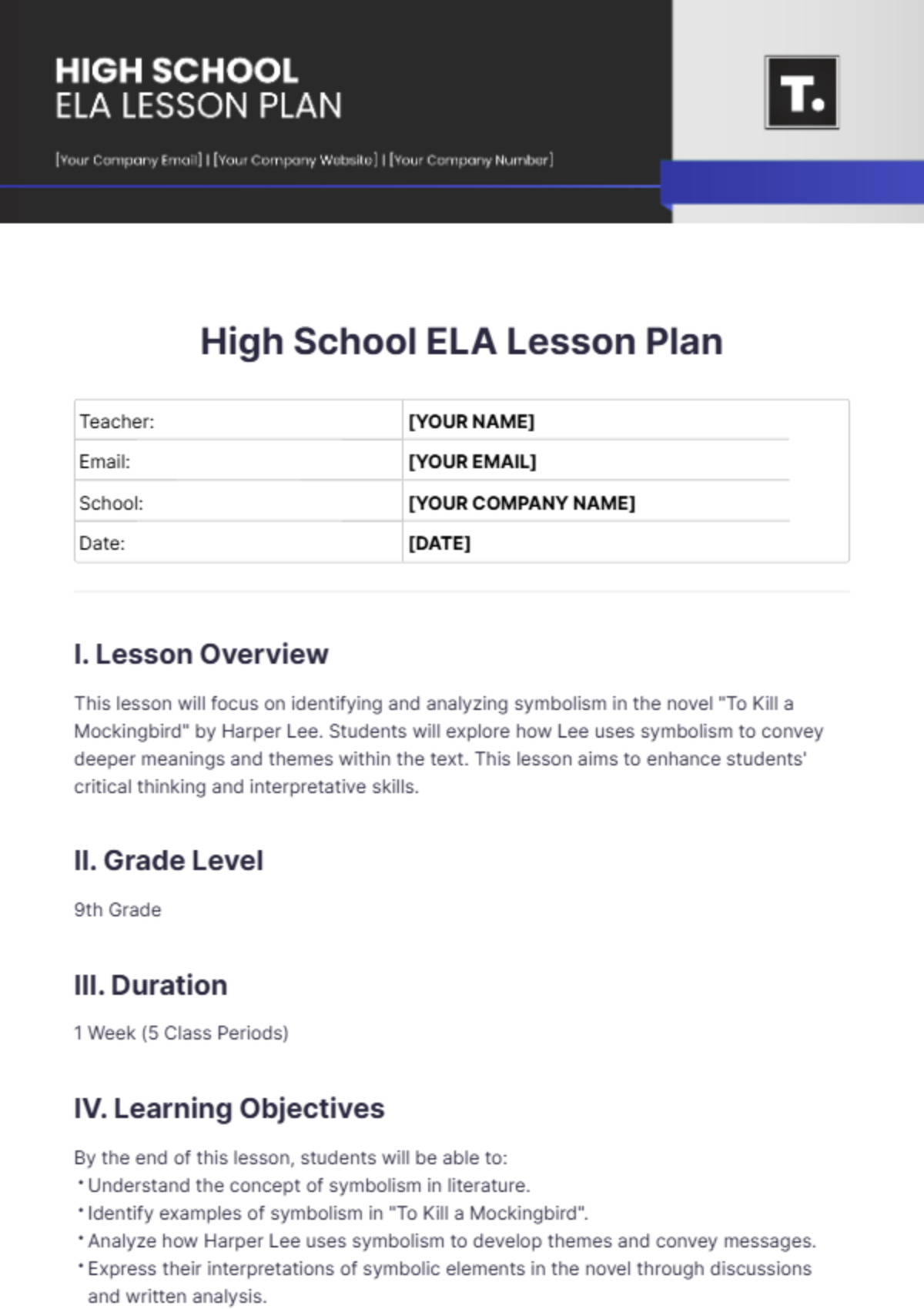Small Group Lesson Plan
Prepared by | [YOUR NAME] |
|---|---|
Contact | [YOUR EMAIL] |
I. Introduction
In this enlightening and empowering lesson, students will embark on a transformative journey to explore the complexities of mental health, gaining valuable insights into its significance and impact on individuals and communities. Through dynamic small group activities, students will delve into various aspects of mental health, including understanding emotions, coping strategies, resilience-building techniques, and the importance of seeking support.
II. Objectives
Develop a comprehensive understanding of mental health and its critical role in overall well-being, emphasizing the interconnectedness of mind, body, and environment.
Identify and differentiate between different emotions, recognizing their multifaceted nature and the diverse range of experiences associated with mental health.
Explore various coping strategies and resilience-building techniques for managing stress, adversity, and life transitions, fostering adaptability and empowerment.
Learn about the importance of seeking support and accessing mental health resources when needed, and promoting help-seeking behaviors and community connections.
III. Materials
Visual aids such as posters, slides, or multimedia presentations depicting emotions, coping strategies, mental health resources, and support networks.
Interactive whiteboard or projector for dynamic visual presentations, interactive exercises, and group discussions.
Markers, sticky notes, index cards, and chart paper for collaborative activities, reflection prompts, and brainstorming sessions.
Small group activity worksheets designed to stimulate reflection, discussion, and skill-building exercises, tailored to different learning styles and preferences.
Optional: Guest speaker or mental health professional to provide firsthand insights, share personal experiences, and facilitate discussions on mental health topics.
IV. Warm-up Activity
Begin the lesson by creating a supportive and inclusive atmosphere through a mindfulness or relaxation exercise, promoting emotional regulation and focus.
Introduce the topic of mental health and its importance in everyday life, framing it as a continuum of well-being that encompasses physical, emotional, and social dimensions.
Facilitate a brief discussion, inviting students to share their thoughts, experiences, and perceptions about mental health, fostering empathy, understanding, and active engagement.
V. Main Activities
A. Understanding Emotions
Organize students into small groups of four members, ensuring diversity in each group in terms of backgrounds, perspectives, and experiences.
Provide each group with a set of emotion cards, scenario cards, or multimedia clips depicting various feelings, moods, and situations.
Task students with identifying and discussing the emotions portrayed in each card or clip, exploring their triggers, expressions, and potential impacts on mental health and well-being.
Encourage open dialogue, active listening, and empathy, creating a safe space for students to share personal experiences, challenges, and coping strategies related to emotions and mental health.
B. Coping Strategies and Resilience Building
Introduce the concept of coping strategies and resilience as essential tools for managing stress, adversity, and life transitions.
Facilitate a brainstorming session where students generate a list of healthy coping mechanisms and self-care practices, drawing from personal experiences, research findings, and community resources.
Encourage students to share personal anecdotes or examples of effective coping strategies they have used in challenging situations, fostering peer support, validation, and mutual learning.
Provide guidance, feedback, and encouragement as students explore and evaluate different resilience-building techniques, emphasizing the importance of self-awareness, adaptability, and social support networks.
C. Seeking Support and Resources
Discuss the importance of seeking support and accessing mental health resources when facing difficulties, experiencing distress, or supporting others in need.
Distribute information cards, brochures, or digital resources outlining local mental health services, hotlines, support groups, and online platforms.
Task students with role-playing scenarios where they practice reaching out for help, providing support to a friend in need, or navigating challenging conversations about mental health.
Facilitate a reflective discussion about the barriers to seeking support, such as stigma, fear, and lack of awareness, and strategies for overcoming these barriers through education, advocacy, and community outreach.
VI. Conclusion
Summarize the key concepts explored throughout the lesson, reinforcing the importance of mental health awareness, self-care, and help-seeking behaviors in promoting resilience and well-being.
Encourage students to apply the knowledge and skills gained during the lesson to their daily lives, fostering self-compassion, empathy, and healthy coping habits.
Reiterate the availability of mental health resources, support networks, and professional services, empowering students to advocate for their own mental health and that of others in their communities.
[YOUR COMPANY NAME]
Phone: [YOUR COMPANY NUMBER]
Address: [YOUR COMPANY ADDRESS]
Website: [YOUR COMPANY WEBSITE]
Follow us on Twitter and Facebook: [YOUR COMPANY SOCIAL MEDIA]
